DiscoverDataScience.org

PhD in Data Science – Your Guide to Choosing a Doctorate Degree Program

Created by aasif.faizal
Professional opportunities in data science are growing incredibly fast. That’s great news for students looking to pursue a career as a data scientist. But it also means that there are a lot more options out there to investigate and understand before developing the best educational path for you.
A PhD is the most advanced data science degree you can get, reflecting a depth of knowledge and technical expertise that will put you at the top of your field.

This means that PhD programs are the most time-intensive degree option out there, typically requiring that students complete dissertations involving rigorous research. This means that PhDs are not for everyone. Indeed, many who work in the world of big data hold master’s degrees rather than PhDs, which tend to involve the same coursework as PhD programs without a dissertation component. However, for the right candidate, a PhD program is the perfect choice to become a true expert on your area of focus.
If you’ve concluded that a data science PhD is the right path for you, this guide is intended to help you choose the best program to suit your needs. It will walk through some of the key considerations while picking graduate data science programs and some of the nuts and bolts (like course load and tuition costs) that are part of the data science PhD decision-making process.
Data Science PhD vs. Masters: Choosing the right option for you
If you’re considering pursuing a data science PhD, it’s worth knowing that such an advanced degree isn’t strictly necessary in order to get good work opportunities. Many who work in the field of big data only hold master’s degrees, which is the level of education expected to be a competitive candidate for data science positions.
So why pursue a data science PhD?
Simply put, a PhD in data science will leave you qualified to enter the big data industry at a high level from the outset.
You’ll be eligible for advanced positions within companies, holding greater responsibilities, keeping more direct communication with leadership, and having more influence on important data-driven decisions. You’re also likely to receive greater compensation to match your rank.
However, PhDs are not for everyone. Dissertations require a great deal of time and an interest in intensive research. If you are eager to jumpstart a career quickly, a master’s program will give you the preparation you need to hit the ground running. PhDs are appropriate for those who want to commit their time and effort to schooling as a long-term investment in their professional trajectory.
For more information on the difference between data science PhD’s and master’s programs, take a look at our guide here.
Topics include:
- Can I get an Online Ph.D in Data Science?
- Overview of Ph.d Coursework
Preparing for a Doctorate Program
Building a solid track record of professional experience, things to consider when choosing a school.
- What Does it Cost to Get a Ph.D in Data Science?
- School Listings

Data Science PhD Programs, Historically
Historically, data science PhD programs were one of the main avenues to get a good data-related position in academia or industry. But, PhD programs are heavily research oriented and require a somewhat long term investment of time, money, and energy to obtain. The issue that some data science PhD holders are reporting, especially in industry settings, is that that the state of the art is moving so quickly, and that the data science industry is evolving so rapidly, that an abundance of research oriented expertise is not always what’s heavily sought after.
Instead, many companies are looking for candidates who are up to date with the latest data science techniques and technologies, and are willing to pivot to match emerging trends and practices.
One recent development that is making the data science graduate school decisions more complex is the introduction of specialty master’s degrees, that focus on rigorous but compact, professional training. Both students and companies are realizing the value of an intensive, more industry-focused degree that can provide sufficient enough training to manage complex projects and that are more client oriented, opposed to research oriented.
However, not all prospective data science PhD students are looking for jobs in industry. There are some pretty amazing research opportunities opening up across a variety of academic fields that are making use of new data collection and analysis tools. Experts that understand how to leverage data systems including statistics and computer science to analyze trends and build models will be in high demand.
Can You Get a PhD in Data Science Online?
While it is not common to get a data science Ph.D. online, there are currently two options for those looking to take advantage of the flexibility of an online program.
Indiana University Bloomington and Northcentral University both offer online Ph.D. programs with either a minor or specialization in data science.
Given the trend for schools to continue increasing online offerings, expect to see additional schools adding this option in the near future.

Overview of PhD Coursework
A PhD requires a lot of academic work, which generally requires between four and five years (sometimes longer) to complete.
Here are some of the high level factors to consider and evaluate when comparing data science graduate programs.
How many credits are required for a PhD in data science?
On average, it takes 71 credits to graduate with a PhD in data science — far longer (almost double) than traditional master’s degree programs. In addition to coursework, most PhD students also have research and teaching responsibilities that can be simultaneously demanding and really great career preparation.
What’s the core curriculum like?
In a data science doctoral program, you’ll be expected to learn many skills and also how to apply them across domains and disciplines. Core curriculums will vary from program to program, but almost all will have a core foundation of statistics.
All PhD candidates will have to take a qualifying exam. This can vary from university to university, but to give you some insight, it is broken up into three phases at Yale. They have a practical exam, a theory exam and an oral exam. The goal is to make sure doctoral students are developing the appropriate level of expertise.
Dissertation
One of the final steps of a PhD program involves presenting original research findings in a formal document called a dissertation. These will provide background and context, as well as findings and analysis, and can contribute to the understanding and evolution of data science. A dissertation idea most often provides the framework for how a PhD candidate’s graduate school experience will unfold, so it’s important to be thoughtful and deliberate while considering research opportunities.
Since data science is such a rapidly evolving field and because choosing the right PhD program is such an important factor in developing a successful career path, there are some steps that prospective doctoral students can take in advance to find the best-fitting opportunity.
Join professional associations
Even before being fully credentials, joining professional associations and organizations such as the Data Science Association and the American Association of Big Data Professionals is a good way to get exposure to the field. Many professional societies are welcoming to new members and even encourage student participation with things like discounted membership fees and awards and contest categories for student researchers. One of the biggest advantages to joining is that these professional associations bring together other data scientists for conference events, research-sharing opportunities, networking and continuing education opportunities.
Leverage your social network
Be on the lookout to make professional connections with professors, peers, and members of industry. There are a number of LinkedIn groups dedicated to data science. A well-maintained professional network is always useful to have when looking for advice or letters of recommendation while applying to graduate school and then later while applying for jobs and other career-related opportunities.
Kaggle competitions
Kaggle competitions provide the opportunity to solve real-world data science problems and win prizes. A list of data science problems can be found at Kaggle.com . Winning one of these competitions is a good way to demonstrate professional interest and experience.
Internships
Internships are a great way to get real-world experience in data science while also getting to work for top names in the world of business. For example, IBM offers a data science internship which would also help to stand out when applying for PhD programs, as well as in seeking employment in the future.
Demonstrating professional experience is not only important when looking for jobs, but it can also help while applying for graduate school. There are a number of ways for prospective students to gain exposure to the field and explore different facets of data science careers.
Get certified
There are a number of data-related certificate programs that are open to people with a variety of academic and professional experience. DeZyre has an excellent guide to different certifications, some of which might help provide good background for graduate school applications.
Conferences
Conferences are a great place to meet people presenting new and exciting research in the data science field and bounce ideas off of newfound connections. Like professional societies and organizations, discounted student rates are available to encourage student participation. In addition, some conferences will waive fees if you are presenting a poster or research at the conference, which is an extra incentive to present.

It can be hard to quantify what makes a good-fit when it comes to data science graduate school programs. There are easy to evaluate factors, such as cost and location, and then there are harder to evaluate criteria such as networking opportunities, accessibility to professors, and the up-to-dateness of the program’s curriculum.
Nevertheless, there are some key relevant considerations when applying to almost any data science graduate program.
What most schools will require when applying:
- All undergraduate and graduate transcripts
- A statement of intent for the program (reason for applying and future plans)
- Letters of reference
- Application fee
- Online application
- A curriculum vitae (outlining all of your academic and professional accomplishments)
What Does it Cost to Get a PhD in Data Science?
The great news is that many PhD data science programs are supported by fellowships and stipends. Some are completely funded, meaning the school will pay tuition and basic living expenses. Here are several examples of fully funded programs:
- University of Southern California
- University of Nevada, Reno
- Kennesaw State University
- Worcester Polytechnic Institute
- University of Maryland
For all other programs, the average range of tuition, depending on the school can range anywhere from $1,300 per credit hour to $2,000 amount per credit hour. Remember, typical PhD programs in data science are between 60 and 75 credit hours, meaning you could spend up to $150,000 over several years.
That’s why the financial aspects are so important to evaluate when assessing PhD programs, because some schools offer full stipends so that you are able to attend without having to find supplemental scholarships or tuition assistance.
Can I become a professor of data science with a PhD.? Yes! If you are interested in teaching at the college or graduate level, a PhD is the degree needed to establish the full expertise expected to be a professor. Some data scientists who hold PhDs start by entering the field of big data and pivot over to teaching after gaining a significant amount of work experience. If you’re driven to teach others or to pursue advanced research in data science, a PhD is the right degree for you.
Do I need a master’s in order to pursue a PhD.? No. Many who pursue PhDs in Data Science do not already hold advanced degrees, and many PhD programs include all the coursework of a master’s program in the first two years of school. For many students, this is the most time-effective option, allowing you to complete your education in a single pass rather than interrupting your studies after your master’s program.
Can I choose to pursue a PhD after already receiving my master’s? Yes. A master’s program can be an opportunity to get the lay of the land and determine the specific career path you’d like to forge in the world of big data. Some schools may allow you to simply extend your academic timeline after receiving your master’s degree, and it is also possible to return to school to receive a PhD if you have been working in the field for some time.
If a PhD. isn’t necessary, is it a waste of time? While not all students are candidates for PhDs, for the right students – who are keen on doing in-depth research, have the time to devote to many years of school, and potentially have an interest in continuing to work in academia – a PhD is a great choice. For more information on this question, take a look at our article Is a Data Science PhD. Worth It?
Complete List of Data Science PhD Programs
Below you will find the most comprehensive list of schools offering a doctorate in data science. Each school listing contains a link to the program specific page, GRE or a master’s degree requirements, and a link to a page with detailed course information.
Note that the listing only contains true data science programs. Other similar programs are often lumped together on other sites, but we have chosen to list programs such as data analytics and business intelligence on a separate section of the website.
Boise State University – Boise, Idaho PhD in Computing – Data Science Concentration
The Data Science emphasis focuses on the development of mathematical and statistical algorithms, software, and computing systems to extract knowledge or insights from data.
In 60 credits, students complete an Introduction to Graduate Studies, 12 credits of core courses, 6 credits of data science elective courses, 10 credits of other elective courses, a Doctoral Comprehensive Examination worth 1 credit, and a 30-credit dissertation.
Electives can be taken in focus areas such as Anthropology, Biometry, Ecology/Evolution and Behavior, Econometrics, Electrical Engineering, Earth Dynamics and Informatics, Geoscience, Geostatistics, Hydrology and Hydrogeology, Materials Science, and Transportation Science.
Delivery Method: Campus GRE: Required 2022-2023 Tuition: $7,236 total (Resident), $24,573 total (Non-resident)
View Course Offerings
Bowling Green State University – Bowling Green, Ohio Ph.D. in Data Science
Data Science students at Bowling Green intertwine knowledge of computer science with statistics.
Students learn techniques in analyzing structured, unstructured, and dynamic datasets.
Courses train students to understand the principles of analytic methods and articulating the strengths and limitations of analytical methods.
The program requires 60 credit hours in the studies of Computer Science (6 credit hours), Statistics (6 credit hours), Data Science Exploration and Communication, Ethical Issues, Advanced Data Mining, and Applied Data Science Experience.
Students must also complete 21 credit hours of elective courses, a qualifying exam, a preliminary exam, and a dissertation.
Delivery Method: Campus GRE: Required 2022-2023 Tuition: $8,418 (Resident), $14,410 (Non-resident)
Brown University – Providence, Rhode Island PhD in Computer Science – Concentration in Data Science
Brown University’s database group is a world leader in systems-oriented database research; they seek PhD candidates with strong system-building skills who are interested in researching TupleWare, MLbase, MDCC, Crowd DB, or PIQL.
In order to gain entrance, applicants should consider first doing a research internship at Brown with this group. Other ways to boost an application are to take and do well at massive open online courses, do an internship at a large company, and get involved in a large open-source software project.
Coding well in C++ is preferred.
Delivery Method: Campus GRE: Required 2022-2023 Tuition: $62,680 total
Chapman University – Irvine, California Doctorate in Computational and Data Sciences
Candidates for the doctorate in computational and data science at Chapman University begin by completing 13 core credits in basic methodologies and techniques of computational science.
Students complete 45 credits of electives, which are personalized to match the specific interests and research topics of the student.
Finally, students complete up to 12 credits in dissertation research.
Applicants must have completed courses in differential equations, data structures, and probability and statistics, or take specific foundation courses, before beginning coursework toward the PhD.
Delivery Method: Campus GRE: Required 2022-2023 Tuition: $37,538 per year
Clemson University / Medical University of South Carolina (MUSC) – Joint Program – Clemson, South Carolina & Charleston, South Carolina Doctor of Philosophy in Biomedical Data Science and Informatics – Clemson
The PhD in biomedical data science and informatics is a joint program co-authored by Clemson University and the Medical University of South Carolina (MUSC).
Students choose one of three tracks to pursue: precision medicine, population health, and clinical and translational informatics. Students complete 65-68 credit hours, and take courses in each of 5 areas: biomedical informatics foundations and applications; computing/math/statistics/engineering; population health, health systems, and policy; biomedical/medical domain; and lab rotations, seminars, and doctoral research.
Applicants must have a bachelor’s in health science, computing, mathematics, statistics, engineering, or a related field, and it is recommended to also have competency in a second of these areas.
Program requirements include a year of calculus and college biology, as well as experience in computer programming.
Delivery Method: Campus GRE: Required 2022-2023 Tuition: $10,858 total (South Carolina Resident), $22,566 total (Non-resident)
View Course Offerings – Clemson
George Mason University – Fairfax, Virginia Doctor of Philosophy in Computational Sciences and Informatics – Emphasis in Data Science
George Mason’s PhD in computational sciences and informatics requires a minimum of 72 credit hours, though this can be reduced if a student has already completed a master’s. 48 credits are toward graduate coursework, and an additional 24 are for dissertation research.
Students choose an area of emphasis—either computer modeling and simulation or data science—and completed 18 credits of the coursework in this area. Students are expected to completed the coursework in 4-5 years.
Applicants to this program must have a bachelor’s degree in a natural science, mathematics, engineering, or computer science, and must have knowledge and experience with differential equations and computer programming.
Delivery Method: Campus GRE: Required 2022-2023 Tuition: $13,426 total (Virginia Resident), $35,377 total (Non-resident)
Harrisburg University of Science and Technology – Harrisburg, Pennsylvania Doctor of Philosophy in Data Sciences
Harrisburg University’s PhD in data science is a 4-5 year program, the first 2 of which make up the Harrisburg master’s in analytics.
Beyond this, PhD candidates complete six milestones to obtain the degree, including 18 semester hours in doctoral-level courses, such as multivariate data analysis, graph theory, machine learning.
Following the completion of ANLY 760 Doctoral Research Seminar, students in the program complete their 12 hours of dissertation research bringing the total program hours to 36.
Delivery Method: Campus GRE: Required 2022-2023 Tuition: $14,940 total
Icahn School of Medicine at Mount Sinai – New York, New York Genetics and Data Science, PhD
As part of the Biomedical Science PhD program, the Genetics and Data Science multidisciplinary training offers research opportunities that expand on genetic research and modern genomics. The training also integrates several disciplines of biomedical sciences with machine learning, network modeling, and big data analysis.
Students in the Genetics and Data Science program complete a predetermined course schedule with a total of 64 credits and 3 years of study.
Additional course requirements and electives include laboratory rotations, a thesis proposal exam and thesis defense, Computer Systems, Intro to Algorithms, Machine Learning for Biomedical Data Science, Translational Genomics, and Practical Analysis of a Personal Genome.
Delivery Method: Campus GRE: Not Required 2022-2023 Tuition: $31,303 total
Indiana University-Purdue University Indianapolis – Indianapolis, Indiana PhD in Data Science PhD Minor in Applied Data Science
Doctoral candidates pursuing the PhD in data science at Indiana University-Purdue must display competency in research, data analytics, and at management and infrastructure to earn the degree.
The PhD is comprised of 24 credits of a data science core, 18 credits of methods courses, 18 credits of a specialization, written and oral qualifying exams, and 30 credits of dissertation research. All requirements must be completed within 7 years.
Applicants are generally expected to have a master’s in social science, health, data science, or computer science.
Currently a majority of the PhD students at IUPUI are funded by faculty grants and two are funded by the federal government. None of the students are self funded.
IUPUI also offers a PhD Minor in Applied Data Science that is 12-18 credits. The minor is open to students enrolled at IUPUI or IU Bloomington in a doctoral program other than Data Science.
Delivery Method: Campus GRE: Required 2022-2023 Tuition: $9,228 per year (Indiana Resident), $25,368 per year (Non-resident)
Jackson State University – Jackson, Mississippi PhD Computational and Data-Enabled Science and Engineering
Jackson State University offers a PhD in computational and data-enabled science and engineering with 5 concentration areas: computational biology and bioinformatics, computational science and engineering, computational physical science, computation public health, and computational mathematics and social science.
Students complete 12 credits of common core courses, 12 credits in the specialization, 24 credits of electives, and 24 credits in dissertation research.
Students may complete the doctoral program in as little as 5 years and no more than 8 years.
Delivery Method: Campus GRE: Required 2022-2023 Tuition: $8,270 total
Kennesaw State University – Kennesaw, Georgia PhD in Analytics and Data Science
Students pursuing a PhD in analytics and data science at Kennesaw State University must complete 78 credit hours: 48 course hours and 6 electives (spread over 4 years of study), a minimum 12 credit hours for dissertation research, and a minimum 12 credit-hour internship.
Prior to dissertation research, the comprehensive examination will cover material from the three areas of study: computer science, mathematics, and statistics.
Successful applicants will have a master’s degree in a computational field, calculus I and II, programming experience, modeling experience, and are encouraged to have a base SAS certification.
Delivery Method: Campus GRE: Required 2022-2023 Tuition: $5,328 total (Georgia Resident), $19,188 total (Non-resident)
New Jersey Institute of Technology – Newark, New Jersey PhD in Business Data Science
Students may enter the PhD program in business data science at the New Jersey Institute of Technology with either a relevant bachelor’s or master’s degree. Students with bachelor’s degrees begin with 36 credits of advanced courses, and those with master’s take 18 credits before moving on to credits in dissertation research.
Core courses include business research methods, data mining and analysis, data management system design, statistical computing with SAS and R, and regression analysis.
Students take qualifying examinations at the end of years 1 and 2, and must defend their dissertations successfully by the end of year 6.
Delivery Method: Campus GRE: Required 2022-2023 Tuition: $21,932 total (New Jersey Resident), $32,426 total (Non-resident)
New York University – New York, New York PhD in Data Science
Doctoral candidates in data science at New York University must complete 72 credit hours, pass a comprehensive and qualifying exam, and defend a dissertation with 10 years of entering the program.
Required courses include an introduction to data science, probability and statistics for data science, machine learning and computational statistics, big data, and inference and representation.
Applicants must have an undergraduate or master’s degree in fields such as mathematics, statistics, computer science, engineering, or other scientific disciplines. Experience with calculus, probability, statistics, and computer programming is also required.
Delivery Method: Campus GRE: Required 2022-2023 Tuition: $37,332 per year
View Course Offering
Northcentral University – San Diego, California PhD in Data Science-TIM
Northcentral University offers a PhD in technology and innovation management with a specialization in data science.
The program requires 60 credit hours, including 6-7 core courses, 3 in research, a PhD portfolio, and 4 dissertation courses.
The data science specialization requires 6 courses: data mining, knowledge management, quantitative methods for data analytics and business intelligence, data visualization, predicting the future, and big data integration.
Applicants must have a master’s already.
Delivery Method: Online GRE: Required 2022-2023 Tuition: $16,794 total
Stevens Institute of Technology – Hoboken, New Jersey Ph.D. in Data Science
Stevens Institute of Technology has developed a data science Ph.D. program geared to help graduates become innovators in the space.
The rigorous curriculum emphasizes mathematical and statistical modeling, machine learning, computational systems and data management.
The program is directed by Dr. Ted Stohr, a recognized thought leader in the information systems, operations and business process management arenas.
Delivery Method: Campus GRE: Required 2022-2023 Tuition: $39,408 per year
University at Buffalo – Buffalo, New York PhD Computational and Data-Enabled Science and Engineering
The curriculum for the University of Buffalo’s PhD in computational and data-enabled science and engineering centers around three areas: data science, applied mathematics and numerical methods, and high performance and data intensive computing. 9 credit course of courses must be completed in each of these three areas. Altogether, the program consists of 72 credit hours, and should be completed in 4-5 years. A master’s degree is required for admission; courses taken during the master’s may be able to count toward some of the core coursework requirements.
Delivery Method: Campus GRE: Required 2022-2023 Tuition: $11,310 per year (New York Resident), $23,100 per year (Non-resident)
University of Colorado Denver – Denver, Colorado PhD in Big Data Science and Engineering
The University of Colorado – Denver offers a unique program for those students who have already received admission to the computer science and information systems PhD program.
The Big Data Science and Engineering (BDSE) program is a PhD fellowship program that allows selected students to pursue research in the area of big data science and engineering. This new fellowship program was created to train more computer scientists in data science application fields such as health informatics, geosciences, precision and personalized medicine, business analytics, and smart cities and cybersecurity.
Students in the doctoral program must complete 30 credit hours of computer science classes beyond a master’s level, and 30 credit hours of dissertation research.
The BDSE fellowship requires students to have an advisor both in the core disciplines (either computer science or mathematics and statistics) as well as an advisor in the application discipline (medicine and public health, business, or geosciences).
In addition, the fellowship covers full stipend, tuition, and fees up to ~50k for BDSE fellows annually. Important eligibility requirements can be found here.
Delivery Method: Campus GRE: Required 2022-2023 Tuition: $55,260 total
University of Marylan d – College Park, Maryland PhD in Information Studies
Data science is a potential research area for doctoral candidates in information studies at the University of Maryland – College Park. This includes big data, data analytics, and data mining.
Applicants for the PhD must have taken the following courses in undergraduate studies: programming languages, data structures, design and analysis of computer algorithms, calculus I and II, and linear algebra.
Students must complete 6 qualifying courses, 2 elective graduate courses, and at least 12 credit hours of dissertation research.
Delivery Method: Campus GRE: Required 2022-2023 Tuition: $16,238 total (Maryland Resident), $35,388 total (Non-resident)
University of Massachusetts Boston – Boston, Massachusetts PhD in Business Administration – Information Systems for Data Science Track
The University of Massachusetts – Boston offers a PhD in information systems for data science. As this is a business degree, students must complete coursework in their first two years with a focus on data for business; for example, taking courses such as business in context: markets, technologies, and societies.
Students must take and pass qualifying exams at the end of year 1, comprehensive exams at the end of year 2, and defend their theses at the end of year 4.
Those with a degree in statistics, economics, math, computer science, management sciences, information systems, and other related fields are especially encouraged, though a quantitative degree is not necessary.
Students accepted by the program are ordinarily offered full tuition credits and a stipend ($25,000 per year) to cover educational expenses and help defray living costs for up to three years of study.
During the first two years of coursework, they are assigned to a faculty member as a research assistant; for the third year students will be engaged in instructional activities. Funding for the fourth year is merit-based from a limited pool of program funds
Delivery Method: Campus GRE: Required 2022-2023 Tuition: $18,894 total (in-state), $36,879 (out-of-state)
University of Nevada Reno – Reno, Nevada PhD in Statistics and Data Science
The University of Nevada – Reno’s doctoral program in statistics and data science is comprised of 72 credit hours to be completed over the course of 4-5 years. Coursework is all within the scope of statistics, with titles such as statistical theory, probability theory, linear models, multivariate analysis, statistical learning, statistical computing, time series analysis.
The completion of a Master’s degree in mathematics or statistics prior to enrollment in the doctoral program is strongly recommended, but not required.
Delivery Method: Campus GRE: Required 2022-2023 Tuition: $5,814 total (in-state), $22,356 (out-of-state)
University of Southern California – Los Angles, California PhD in Data Sciences & Operations
USC Marshall School of Business offers a PhD in data sciences and operations to be completed in 5 years.
Students can choose either a track in operations management or in statistics. Both tracks require 4 courses in fall and spring of the first 2 years, as well as a research paper and courses during the summers. Year 3 is devoted to dissertation preparation and year 4 and/or 5 to dissertation defense.
A bachelor’s degree is necessary for application, but no field or further experience is required.
Students should complete 60 units of coursework. If the students are admitted with Advanced Standing (e.g., Master’s Degree in appropriate field), this requirement may be reduced to 40 credits.
Delivery Method: Campus GRE: Required 2022-2023 Tuition: $63,468 total
University of Tennessee-Knoxville – Knoxville, Tennessee The Data Science and Engineering PhD
The data science and engineering PhD at the University of Tennessee – Knoxville requires 36 hours of coursework and 36 hours of dissertation research. For those entering with an MS degree, only 24 hours of course work is required.
The core curriculum includes work in statistics, machine learning, and scripting languages and is enhanced by 6 hours in courses that focus either on policy issues related to data, or technology entrepreneurship.
Students must also choose a knowledge specialization in one of these fields: health and biological sciences, advanced manufacturing, materials science, environmental and climate science, transportation science, national security, urban systems science, and advanced data science.
Applicants must have a bachelor’s or master’s degree in engineering or a scientific field.
All students that are admitted will be supported by a research fellowship and tuition will be included.
Many students will perform research with scientists from Oak Ridge national lab, which is located about 30 minutes drive from campus.
Delivery Method: Campus GRE: Required 2022-2023 Tuition: $11,468 total (Tennessee Resident), $29,656 total (Non-resident)
University of Vermont – Burlington, Vermont Complex Systems and Data Science (CSDS), PhD
Through the College of Engineering and Mathematical Sciences, the Complex Systems and Data Science (CSDS) PhD program is pan-disciplinary and provides computational and theoretical training. Students may customize the program depending on their chosen area of focus.
Students in this program work in research groups across campus.
Core courses include Data Science, Principles of Complex Systems and Modeling Complex Systems. Elective courses include Machine Learning, Complex Networks, Evolutionary Computation, Human/Computer Interaction, and Data Mining.
The program requires at least 75 credits to graduate with approval by the student graduate studies committee.
Delivery Method: Campus GRE: Not Required 2022-2023 Tuition: $12,204 total (Vermont Resident), $30,960 total (Non-resident)
University of Washington Seattle Campus – Seattle, Washington PhD in Big Data and Data Science
The University of Washington’s PhD program in data science has 2 key goals: training of new data scientists and cyberinfrastructure development, i.e., development of open-source tools and services that scientists around the world can use for big data analysis.
Students must take core courses in data management, machine learning, data visualization, and statistics.
Students are also required to complete at least one internship that covers practical work in big data.
Delivery Method: Campus GRE: Required 2022-2023 Tuition: $17,004 per year (Washington resident), $30,477 (non-resident)
University of Wisconsin-Madison – Madison, Wisconsin PhD in Biomedical Data Science
The PhD program in Biomedical Data Science offered by the Department of Biostatistics and Medical Informatics at UW-Madison is unique, in blending the best of statistics and computer science, biostatistics and biomedical informatics.
Students complete three year-long course sequences in biostatistics theory and methods, computer science/informatics, and a specialized sequence to fit their interests.
Students also complete three research rotations within their first two years in the program, to both expand their breadth of knowledge and assist in identifying a research advisor.
Delivery Method: Campus GRE: Required 2022-2023 Tuition: $10,728 total (in-state), $24,054 total (out-of-state)
Vanderbilt University – Nashville, Tennessee Data Science Track of the BMI PhD Program
The PhD in biomedical informatics at Vanderbilt has the option of a data science track.
Students complete courses in the areas of biomedical informatics (3 courses), computer science (4 courses), statistical methods (4 courses), and biomedical science (2 courses). Students are expected to complete core courses and defend their dissertations within 5 years of beginning the program.
Applicants must have a bachelor’s degree in computer science, engineering, biology, biochemistry, nursing, mathematics, statistics, physics, information management, or some other health-related field.
Delivery Method: Campus GRE: Required 2022-2023 Tuition: $53,160 per year
Washington University in St. Louis – St. Louis, Missouri Doctorate in Computational & Data Sciences
Washington University now offers an interdisciplinary Ph.D. in Computational & Data Sciences where students can choose from one of four tracks (Computational Methodologies, Political Science, Psychological & Brain Sciences, or Social Work & Public Health).
Students are fully funded and will receive a stipend for at least five years contingent on making sufficient progress in the program.
Delivery Method: Campus GRE: Required 2022-2023 Tuition: $59,420 total
Worcester Polytechnic Institute – Worcester, Massachusetts PhD in Data Science
The PhD in data science at Worcester Polytechnic Institute focuses on 5 areas: integrative data science, business intelligence and case studies, data access and management, data analytics and mining, and mathematical analysis.
Students first complete a master’s in data science, and then complete 60 credit hours beyond the master’s, including 30 credit hours of research.
Delivery Method: Campus GRE: Required 2022-2023 Tuition: $28,980 per year
Yale University – New Haven, Connecticut PhD Program – Department of Stats and Data Science
The PhD in statistics and data science at Yale University offers broad training in the areas of statistical theory, probability theory, stochastic processes, asymptotics, information theory, machine learning, data analysis, statistical computing, and graphical methods. Students complete 12 courses in the first year in these topics.
Students are required to teach one course each semester of their third and fourth years.
Most students complete and defend their dissertations in their fifth year.
Applicants should have an educational background in statistics, with an undergraduate major in statistics, mathematics, computer science, or similar field.
Delivery Method: Campus GRE: Required 2022-2023 Tuition: $46,900 total

- Related Programs

NYU Center for Data Science
Harnessing Data’s Potential for the World
PhD in Data Science
An NRT-sponsored program in Data Science
- Areas & Faculty
- Admission Requirements
- Medical School Track
- NRT FUTURE Program
Advances in computational speed and data availability, and the development of novel data analysis methods, have birthed a new field: data science. This new field requires a new type of researcher and actor: the rigorously trained, cross-disciplinary, and ethically responsible data scientist. Launched in Fall 2017, the pioneering CDS PhD Data Science program seeks to produce such researchers who are fluent in the emerging field of data science, and to develop a native environment for their education and training. The CDS PhD Data Science program has rapidly received widespread recognition and is considered among the top and most selective data science doctoral programs in the world. It has recently been recognized by the NSF through an NRT training grant.
The CDS PhD program model rigorously trains data scientists of the future who (1) develop methodology and harness statistical tools to find answers to questions that transcend the boundaries of traditional academic disciplines; (2) clearly communicate to extract crisp questions from big, heterogeneous, uncertain data; (3) effectively translate fundamental research insights into data science practice in the sciences, medicine, industry, and government; and (4) are aware of the ethical implications of their work.
Our programmatic mission is to nurture this new generation of data scientists, by designing and building a data science environment where methodological innovations are developed and translated successfully to domain applications, both scientific and social. Our vision is that combining fundamental research on the principles of data science with translational projects involving domain experts creates a virtuous cycle: Advances in data science methodology transform the process of discovery in the sciences, and enable effective data-driven governance in the public sector. At the same time, the demands of real-world translational projects will catalyze the creation of new data science methodologies. An essential ingredient of such methodologies is that they embed ethics and responsibility by design.
These objectives will be achieved by a combination of an innovative core curriculum, a novel data assistantship mechanism that provides training of skills transfer through rotations and internships, and communication and entrepreneurship modules. Students will be exposed to a wider range of fields than in more standard PhD programs while working with our interdisciplinary faculty. In particular, we are proud to offer a medical track for students eager to explore data science as applied to healthcare or to develop novel theoretical models stemming from medical questions.
In short, the CDS PhD Data Science program prepares students to become leaders in data science research and prepares them for outstanding careers in academia or industry. Successful candidates are guaranteed financial support in the form of tuition and a competitive stipend in the fall and spring semesters for up to five years.* We invite you to learn more through our webpage or by contacting [email protected] .
*The Ph.D. program also offers students the opportunity to pursue their study and research with Data Science faculty based at NYU Shanghai. With this opportunity, students generally complete their coursework in New York City before moving full-time to Shanghai for their research. For more information, please visit the NYU Shanghai Ph.D. page .
Doctor of Philosophy in Data Science
Developing future pioneers in data science
The School of Data Science at the University of Virginia is committed to educating the next generation of data science leaders. The Ph.D. in Data Science is designed to impart the skills and knowledge necessary to enable research and discovery in data science methods. Because the end goal is to extract knowledge and enable discovery from complex data, the program also boasts robust applied training that is geared toward interdisciplinary collaboration. Doctoral candidates will master the computational and mathematical foundations of data science, and develop competencies in data engineering, software development, data policy and ethics.
Doctoral students in our program apprentice with faculty and pursue advanced research in an interdisciplinary, collaborative environment that is often focused on scientific discovery via data science methods. By serving as teaching assistants for the School’s undergraduate and graduate programs, they learn to be adroit educators and hone their critical thinking and communication skills.
LEARNING OUTCOMES
Pursuing a Ph.D. in Data Science will prepare you to become an expert in the field and work at the cutting edge of a new discipline. According to LinkedIn’s most recent Emerging Jobs Report, data science is booming and data scientist is one of the top three fastest growing jobs. A Ph.D. in Data Science from the University of Virginia opens career paths in academia, industry or government. Graduates of our program will:
- Understand data as a generic concept, and how data encodes and captures information
- Be fluent in modern data engineering techniques, and work with complex and large data sets
- Recognize ethical and legal issues relevant to data analytics and their impact on society
- Develop innovative computational algorithms and novel statistical methods that transform data into knowledge
- Collaborate with research teams from a wide array of scientific fields
- Effectively communicate methods and results to a variety of audiences and stakeholders
- Recognize the broad applicability of data science methods and models
Graduates of the Ph.D. in Data Science will have contributed novel methodological research to the field of data science, demonstrated their work has impactful interdisciplinary applications and defended their methods in an open forum.

A Week in the Life: First-Year Ph.D. Student

Ph.D. Student Profile: Jade Preston
Ph.D. Student Profile: Beau LeBlond
Get the latest news.
Subscribe to receive updates from the School of Data Science.
- Prospective Student
- School of Data Science Alumnus
- UVA Affiliate
- Industry Member

PhD in Data Science
Students conduct research on cutting edge problems alongside preeminent faculty at UChicago and explore the emerging field of Data Science. As an emerging discipline, Data Science addresses foundational problems across the entire data life cycle. Tackling issues of inequity, climate change, and sustainability will require cutting edge research in artificial intelligence and data usage combined with innovative educational programs to train students in the concepts of information systems. Students of Data Science will not only immerse themselves in a rapidly evolving field; they will help redefine it altogether.
Research Excellence:
As a PhD student in Data Science, you will learn from faculty who have developed research programs that span a wide variety of data science and AI topics, from theory to applications, with a focus on making a societal impact.
Research Topics:
- Artificial Intelligence
- Data, AI, and Society
- Data Systems
- Human-Centered Data Science
- Machine Learning and Statistics
- Use-Inspired Data Science
For more information, including a link to the application, see the Committee on Data Science website .
- Current Students
- Online Only Students
- Faculty & Staff
- Parents & Family
- Alumni & Friends
- Community & Business
- Student Life
- College of Computing and Software Engineering
- Executive Advisory Board
- CCSE Job Openings
- Academic Advising
- Student Resources
- International Student Resources
- Faculty Resources
- School of Data Science and Analytics
- Department of Computer Science
- Department of Information Technology
- Department of Software Engineering and Game Development
- Undergraduate
- Why Partner?
- Ways to Engage
- Friends & Corporate Affiliates
- K-12 outreach
- Employer Networking

PhD in Data Science and Analytics
Degrees & Programs
- Doctoral Degree in Data Science and Analytics
- Certificates
We launched the first formal PhD program in Data Science in 2015. Our program sits at the intersection ofcomputer science, statistics, mathematics, and business. Our students engage in relevant research with faculty from across our eleven colleges. As one of the institutions on the forefront of the development of data science as an academic discipline, we are committed to developing the next generation of Data Science leaders, researchers, and educators. Culturally, we are committed to the discipline of Data Science, through ethical practices, attention to fairness, to a diverse student body, to academic excellence, and research which makes positive contributions to our local, regional, and global community.
Herman Ray , Director, Ph.D. in Data Science and Analytics

About the Doctoral Degree in Data Science and Analytics
This degree will train individuals to translate and facilitate new innovative research, structured and unstructured, complex data into information to improve decision making. This curriculum includes heavy emphasis on programming, data mining, statistical modeling, and the mathematical foundations to support these concepts. Importantly, the program also emphasizes communication skills – both oral and written – as well as application and tying results to business and research problems.
Because this degree is a Ph.D., it creates flexibility. Graduates can either pursue a position in the private or public sector as a "practicing" Data Scientist – where continued demand is expected to greatly outpace the supply - or pursue a position within academia, where they would be uniquely qualified to teach these skills to the next generation.
Information Sessions for Fall 2025 Admission
To be announced
Data Science and Analytics PhD Curriculum
Stage One: Pre-Program Requirements
- Successful applicants will have completed a masters degree in a computational field (e.g., engineering, computer science, statistics, economics, finance, etc.)
- Applicants are expected to have deep proficiency in at least one analytical programming language (e.g., SAS, R, Python). SQL and Java are helpful but not required.
- Interested applicants who have earned an undergraduate degree are encouraged to apply to the Ph.D. Program with the embedded MS in Computer Science or with the MS in Applied Statistics.
Stage Two: Coursework
The Ph.D. in Data Science and Analytics requires 78 total credit hours spread over four years of study. Example Program of Study:
- CS 8265 - Big Data Analytics
- CS 8267 - Machine Learning
- MATH 8010 - Theory of Linear Models (optional)
- MATH 8020 - Graph Theory
- MATH 8030 - Applied Discrete and Combinatorial Mathematics
- STAT 8240 - Data Mining I
- STAT 8250 - Data Mining II
- Comprehensive Exam
- 21 credit hours of electives/concentration
Students take up to 9 credit hours of 6000- or 7000-level courses in DS, STAT, or CS with permission of the program director. Students take any 8000- or 9000-level course in DS, STAT, MATH, CS or IT, or the HHS courses in the mHealth concentration.
- at least 15 credit hours in CS courses at 8000 or 9000 levels (except CS 9900)
- at least 15 credit hours in STAT courses at 8000 or 9000 levels
- HHS 8000 - Introduction to mHealth
- HHS 8010 - Ethical Issues in mHealth, Healthcare and Human Subjects Research
- STAT 8235 - Advanced Longitudinal Data Analysis
- HHS 8050 - Advanced Research in mHealth
- HHS 8020 - mHealth Applications or HHS 8030 - Advanced Special Topics in mHealth
- Develop Dissertation Research Proposal
- DS 9700 Doctoral Internship/Research Lab
- DS 9900 Dissertation
- Dissertation Proposal Defense
- DS 9900 DissertationFinal Dissertation Defense
Stage Three: Project Engagement and Research/Dissertation
Relevant, interdisciplinary research forms the foundation of the Ph.D. in Data Science and Analytics. While students are encouraged to engage in research from their first semester, the last two years of the program are structured to help students transition into becoming independent, lead researchers. In this last stage of the program, students will work with research faculty, including their advisor, in one of our data science research labs.
Program Student Learning Outcomes
At the end of the program, students will be able to:
- Demonstrate their understanding of the research process
- Demonstrate mastery of core concepts relevant to three key areas in mathematics, statistics and computer science
- Develop themselves as professionals prepared for work as a doctoral-educated individual beyond graduation
Admission Requirements and Application
Frequently Asked Questions (FAQ)
How long will the program take?
How much does the program cost?
Who would be successful in the program?
Where do these graduates work after graduation?
What are the publication/research requirements?
What did Science Doctoral Students Study?
- Applied Computer Science
- Applied Economics and Statistics
- Applied Statistics
- Applied Mathematics
- Bioinformatics
- Business Analytics
- Chemical Biology
- Computer Science
- Data Science
- Forecasting & Strategic Management
- Integrative Biology
- Public Admin in Economic Policy Mgmt
- Mathematics
- Mechanical Engineering
- Software Engineering
What is the Project Engagement requirement?
Can I pursue the program part- time while I am working full-time?
Can I live on campus?
Are the courses online?
Do I have to have a masters degree to apply?
Where did Data Doctoral Students Study?
- Ajou University, South Korea
- Albert-Ludwigs University of Freiburg
- Auburn University
- Bowling Green State University
- Clemson University
- Columbia University
- Columbus State University
- Florida State University
- Georgia Southern University
- Georgia State
- Georgia Tech
- Iran University of Science and Technology
- Kennesaw State University
- Marshall University
- Michigan State University
- Murray State University
- North Carolina State University
- St. Petersburg State University, Russia
- University of KwaZulu-Natal, South Africa
- University of Michigan
- University of North Carolina
- University of Toledo
Ph.D. in Data Science and Analytics Student Cohorts

Royce Alfred
Bachelor's Degree: Psychology, Kennesaw State University
Master's Degree: Applied Statistics and Analytics, Kennesaw State University
Work History: 4 years as a Data Scientist at Equifax
Professional Objective: Work as a research data scientist in the corporate environment

Venkata Abhiram Chitty
Bachelor's Degree: Mathematics, Statistics and Computer Science, Osmania University, Telangana, India
Master's Degree: Data Science, VIT-AP University, Amaravati, Andhra Pradesh, India
Professional Objective: To apply my Data Science skills in public health domain and help the society

Caleb Greski
Bachelor's Degree:
Master's Degree:
Work History:
Courses Taught:
Publications:
Professional Objective:
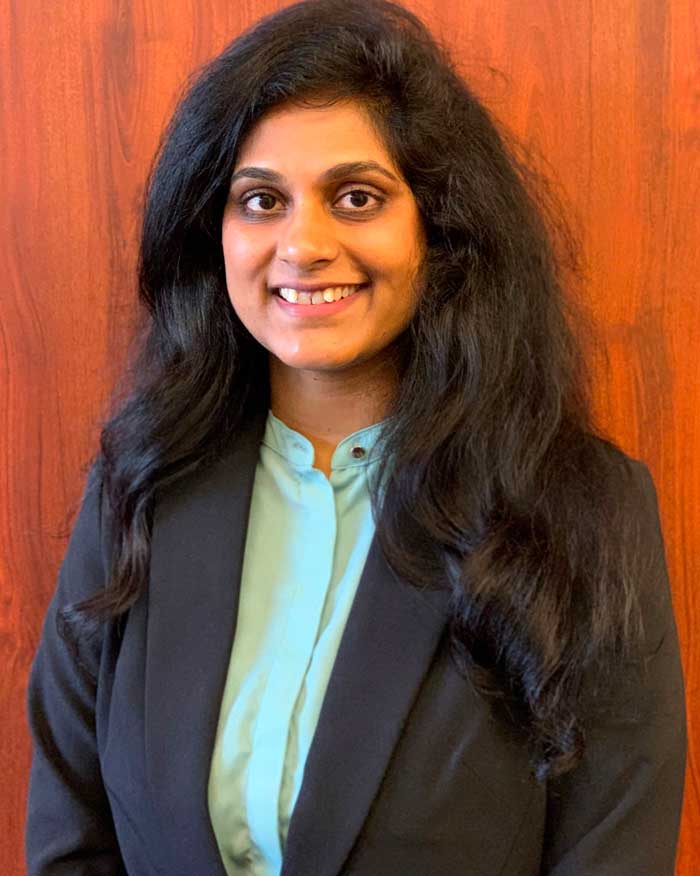
Moukthika Kadaparthi
Bachelor's Degree: Electrical and Electronics Engineering, SASTRA Deemed University
Master's Degree: Computers and Information Science, Cleveland State University
Work History:
- Business Intelligence Analyst, Philips Healthcare, Georgia
- Graduate Research Assistant, Cleveland State University, Ohio
Professional Objective: My objective is to enter academia with the aim of sharing the practical applications of data science in diverse domains and its potential positive impacts. With my unique blend of academic rigor and industry experience, I am driven to analyze complex data sets using cutting-edge data science techniques, to provide actionable insights and support data-driven decision-making.
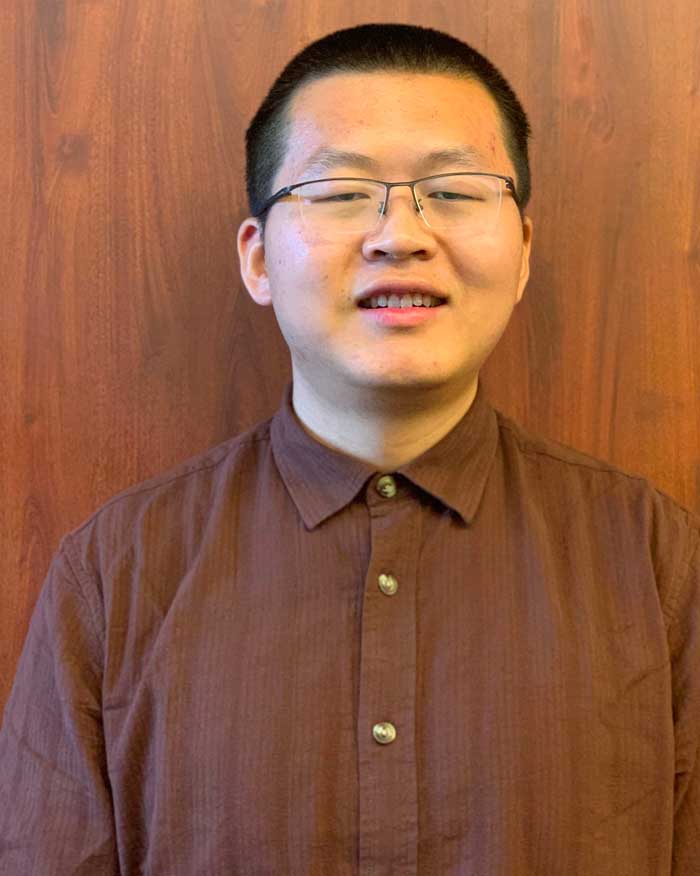
Bachelor's Degree: Civil Engineering, Huazhong University of Science and Technology, China
Master's Degree: Business Analytics, Syracuse University
- Credit Modeling Analyst, Agricultural Development Bank of China
- Research Assistant, Changjiang Securities
- Graduate Assistant, Syracuse University
Courses Taught: Calculus I, Marketing Analytics, Data Mining
Awards: Merit-Based Scholarship, Syracuse University
Professional Objective: To secure a challenging position in a reputable organization to expand myself within the field of Artificial Intelligence.
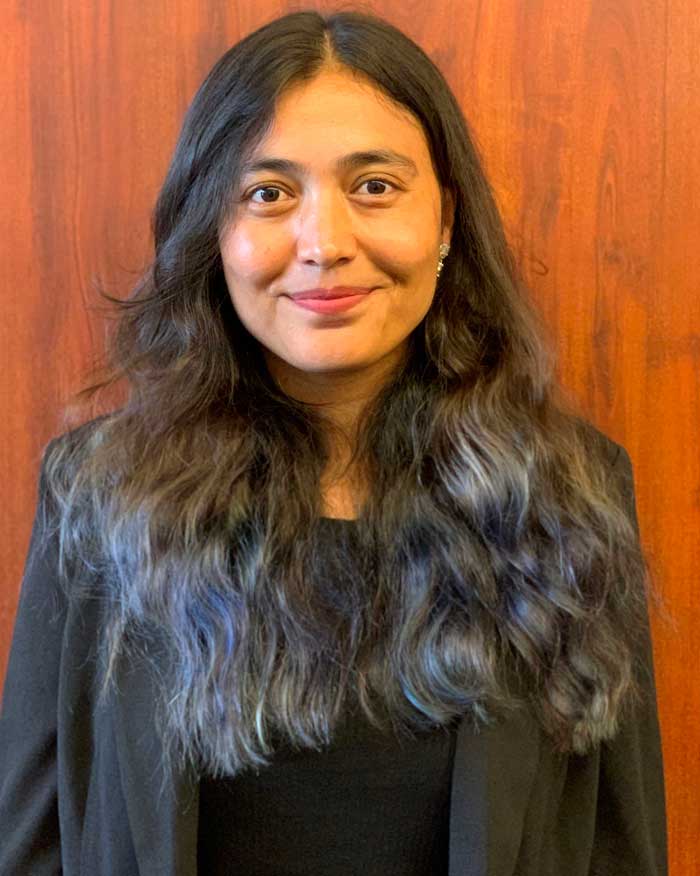
Kausar Perveen
Bachelor's Degree: Bachelor in Engineering Software Engineering, National University of Sciences and Technology, Pakistan
Master's Degree: Masters in Data Science, Illinois Institute of Technology, Chicago
- Fullstack Developer at ItRunsInMyFamily, Charleston, South Carolina
- Software Engineer II , Xgrid Pakistan
- Senior Research Coordinator, Aga Khan University Pakistan
- Machine Learning Engineer, Agoda Thailand
Publications: National cervical cancer burden estimation through systematic review and analysis of publicly available data in Pakistan
Service and Awards:
- Fulbright Scholarship award for Master’s degree in Data Science
- Aga Khan Education Service Pakistan, merit cumulative need based scholarship for Bachelors in Software Engineering
Professional Objective: My main motivation behind getting a degree in Data Science is to receive and perform qualified research experience in Data Science and public health
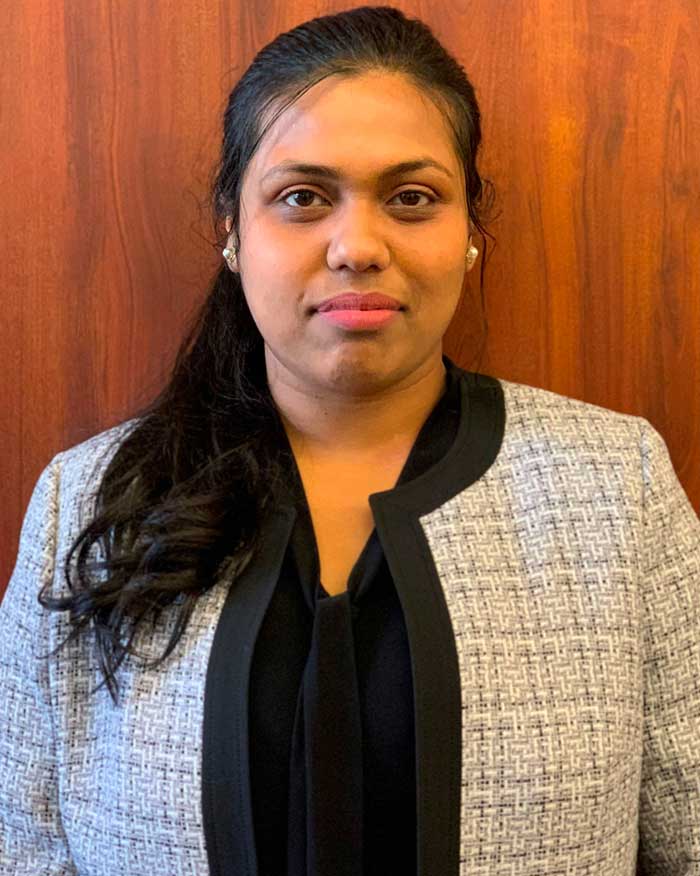
Bachelor's Degree: Statistics, University of Dhaka, Dhaka, Bangladesh
Master's Degree: Mathematics (Statistics Concentration), University of Toledo, Ohio
- Analytics Engineer Intern, Cooper Smith, Toledo, Ohio
- Business AnalystAkij Food and Beverage Limited, Dhaka, Bangladesh
Courses Taught: Introduction to Statistics
Professional Objective: I am interested to work as a data scientist in the industry

Ayomide Isaac Afolabi
Bachelor's Degree: Chemical Engineering, Ladoke Akintola University of Technology
Master's Degree: Data Science, Auburn University
Work History: Graduate Research Assistant, Auburn University
Courses Taught: Python Programming
Publications: Larson EA, Afolabi A, Zheng J, Ojeda AS. Sterols and sterol ratios to trace fecal contamination: pitfalls and potential solutions. Environ Sci Pollut Res Int. 2022 Jul;29(35):53395-53402. doi: 10.1007/s11356-022-19611-2 . Epub 2022 Mar 14. PMID: 35287190
Professional Objective: To work as a research data scientist in the industry
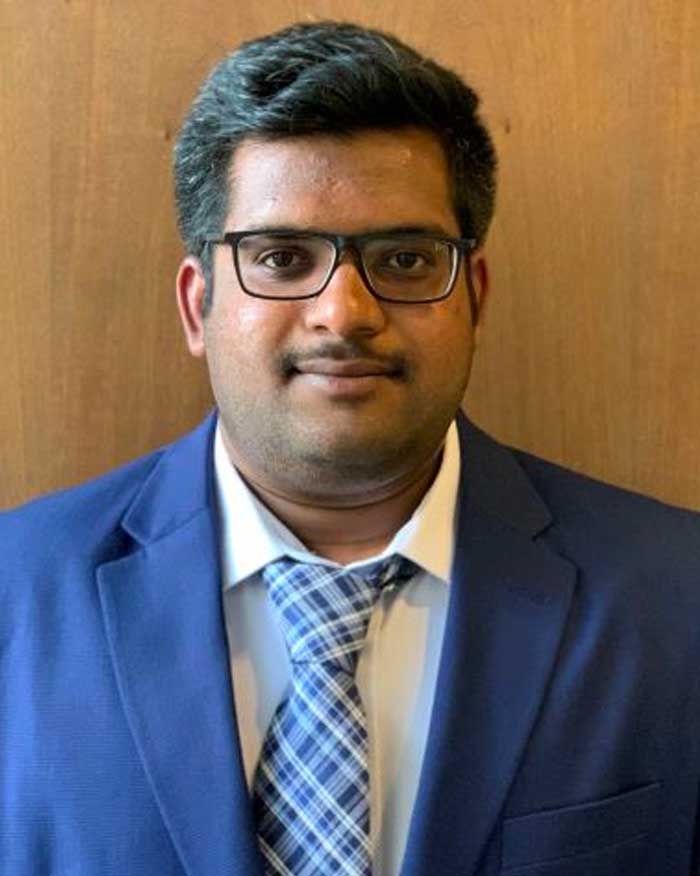
Dinesh Chowdary Attota
Bachelor's Degree: Computer Science, Jawaharlal Nehru Technological University Kakinada (JNTUK), India
Master's Degree: Computer Science, Kennesaw State University
Work History: Associate Consultant, SL Techknow Solutions India Pvt Ltd, India 2018 - 2020
Publications:
- An Ensemble Multi-View Federated Learning Intrusion Detection for IoT
- A Conversational Recommender System for Exploring Pedagogical Design Patterns
- An Ensembled Method For Diabetic Retinopathy Classification using Transfer Learning
Professional Objective: I'd like to be a faculty member at a university so that I can continue to do research.

Nzubechukwu Ohalete
Bachelor's Degree: Mathematics,University of Nigeria, Nsukka
Master's Degree: Applied Statistics, Bowling Green State University
Work History: Graduate Assistant/Data Analyst, Federal University of Technology, Owerri - Mathematics Department
Courses Taught: Elementary Mathematics, Mathematical Methods
Awards: James A. Sullivan Outstanding Graduate Student Award, Applied Statistics and Operations Research Department, April 2022
Professional Objective: To use data science techniques to solve problems which makes our lives better and also makes our world a better place

Ryan Parker
Bachelor's Degree: Microbiology, University of Tennessee - Knoxville
Master's Degree: Integrative Biology, Kennesaw State University
Work History: Instructor of Biology, Kennesaw State University
Courses Taught: Nursing Microbiology Lectures and Labs, Introductory Biology Labs, Biotechnology Lectures and Labs
- Parker RA, Gabriel KT, Graham K, Cornelison CT. Validation of methylene blue viability staining with the emerging pathogen Candida auris. J Microbiol Methods. 2020 Feb;169:105829. doi: 10.1016/j.mimet.2019.105829 . Epub 2019 Dec 27. PMID: 31884053.
- Parker RA, Gabriel KT, Graham KD, Butts BK, Cornelison CT. Antifungal Activity of Select Essential Oils against Candida auris and Their Interactions with Antifungal Drugs. Pathogens. 2022 Jul 22;11(8):821. doi: 10.3390/pathogens11080821 . PMID: 35894044; PMCID: PMC9331469.
Awards: Best Graduate Poster: Symposium for Student Scholars hosted by Kennesaw State University (Fall 2018) for Poster: "Antifungal Activity of Select Essential Oils and Synergism with Antifungal Drugs against Candida auris"
Professional Objective : To apply Data Science techniques to large scientific datasets, such as genomic and astronomical data, and to help bridge the gap between disparate fields by working in an interdisciplinary space to offer integrative and data-driven solutions to the increasingly complex problems presented to the traditional Sciences.
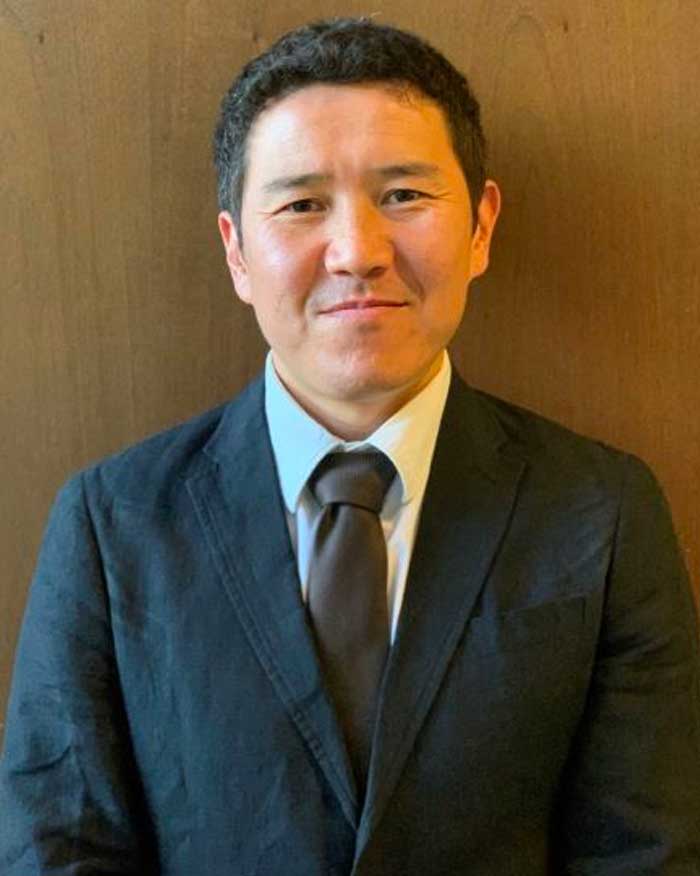
Askhat Yktybaev
Bachelor's Degree: Forecasting and Strategic Management, Saint-Petersburg State University of Economics and Finance, Russia
Master's Degree: Forecasting and Strategic Management, Saint-Petersburg State University of Economics and Finance, Russia; Public Administration in Economic Policy Management, School of International and Public Affairs, Columbia University
Work History:
- from Data Analyst to Head of Research Unit, Central Bank of Kyrgyz Republic
- Sr. Data Scientist in OJSC, Aiyl Bank, Kyrgyzstan
- Consultant, The World Bank, Washington D.C.
Courses Taught: Financial Programing in the Central Bank, Monetary Policy Transmission Mechanism
Service and Awards: Winner of the Joint Japan/World Bank Graduate Scholarship Program, National Bank Silver Medal for Best Forecast
Professional Objective: I want to found a successful Fintech startup one day.
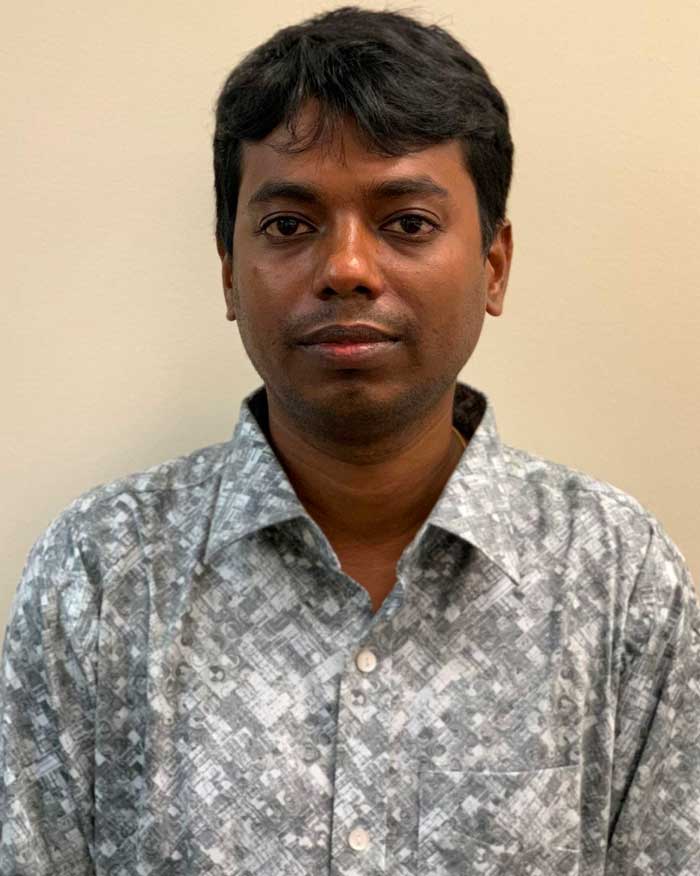
Sanad Biswas
Bachelor's Degree: Statistics, Biostatistics and Informatics, University of Dhaka, Bangladesh
Master's Degree: Statistics, University of Toledo, OH
- Research Assistant: US Army Research Lab, Kennesaw State University
- Consultant, Statistical Consulting Service, University of Toledo
- Graduate Teaching Assistant, University of Toledo
Courses Taught: Calculus and Business Calculus, Facilitated students’ study of Statistics courses at the University of Toledo.
Professional Objective: To work as a researcher in the industry or as a faculty. I am primarily interested in the application of machine learning in different fields.
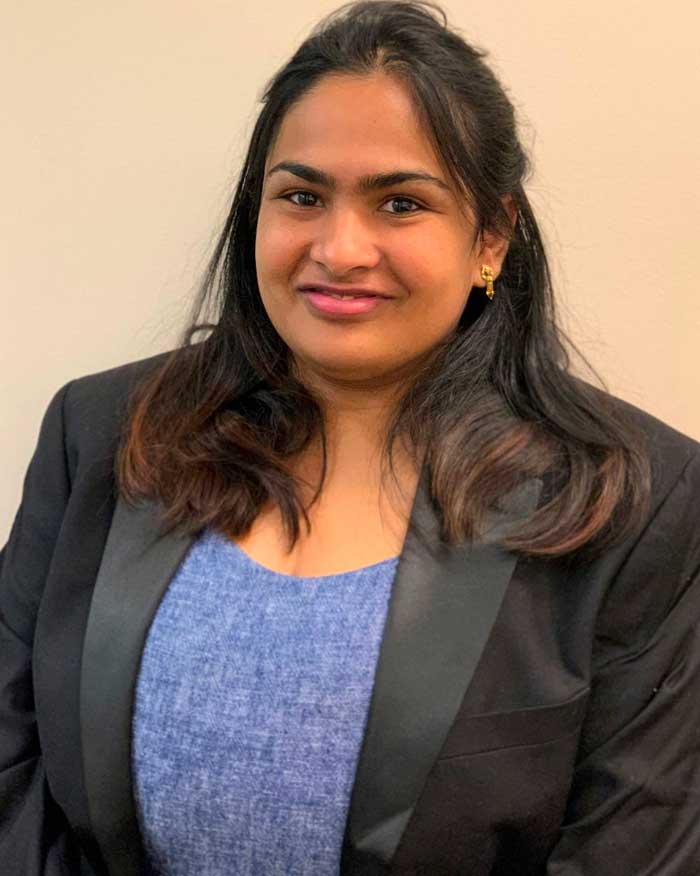
Mallika Boyapati
Bachelor's Degree: Electronics and Computer Engineering, K L University, India
Master's Degree: Applied Computer Science, Columbus State University
- T-Mobile, Seattle, WA, USA: Sr. Data analyst, 2018- 2021
- UITS, Columbus State University, Columbus, GA, USA: Data Analyst -Graduate assistant, 2016-2018
- Menlo Technologies, India: Jr. Data Analyst, Intern, 2014- 2016
Courses Taught: DATA 4310 - Statistical Data Mining
Publications:
- Anti-Phishing Approaches in the Era of the Internet of Things. In: Pathan, AS.K. (eds) Towards a Wireless Connected World: Achievements and New Technologies. Springer, Cham - https://doi.org/10.1007/978-3-031-04321-5_3
- An empirical analysis of image augmentation against model inversion attack in federated learning - https://doi.org/10.1007/s10586-022-03596-1
- M. Boyapati and R. Aygun, "Phishing Web Page Detection using Web Scraping," SoutheastCon 2023, Orlando, FL, USA, 2023, pp. 167-174, doi: 10.1109/SoutheastCon51012.2023.10115148.
- M. Boyapati and R. Aygun, "Default Prediction on Commercial Credit Big Data Using Graph-based Variable Clustering," 2023 IEEE 17th International Conference on Semantic Computing (ICSC), Laguna Hills, CA, USA, 2023, pp. 139-142, doi: 10.1109/ICSC56153.2023.00029.
- Boyapati, M., Aygun, R. (2023) Explainable Machine Learning for Default Prediction on Commercial Credit Big Data Using Graph-based Variable Clustering. In Encyclopedia with Semantic Computing and Robotic Intelligence VOL. 0 https://doi.org/10.1142/S2529737623500119
- Winners of Dataiku March Madness Bracket-thon, 2021 in predicting the NBA bracket
- Winners of 2021 Analytics Day Ph.D. level research poster presentation
Professional Objective: To leverage strong analytical and technical abilities to research and develop effective data models, visualize data, and uncover insights that makes an impact in field of data science
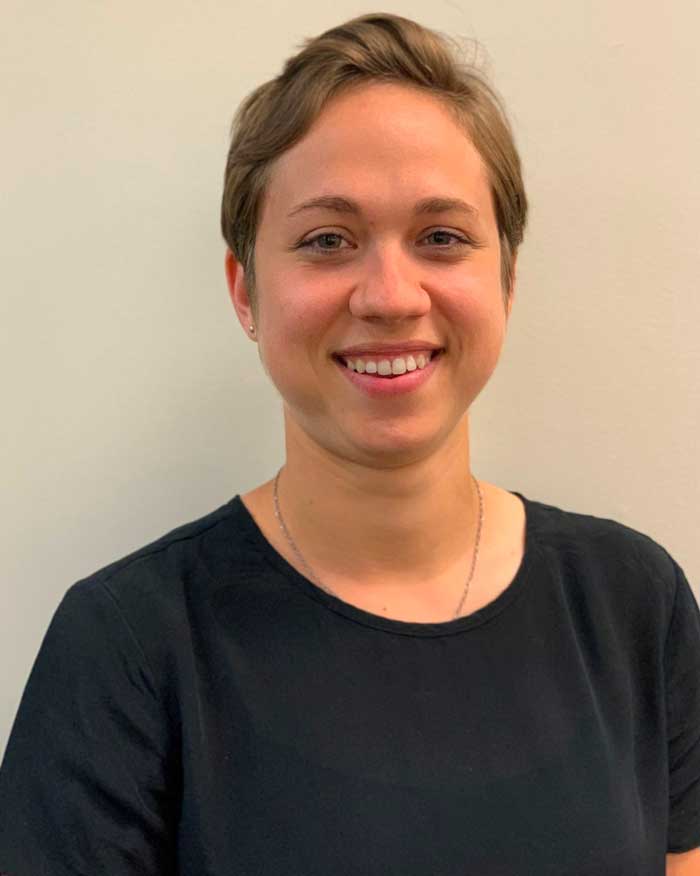
Nina Grundlingh
Bachelor's Degree: Applied Mathematics and Statistics, University of KwaZulu-Natal, South Africa
Master's Degree: Statistics, University of KwaZulu-Natal, South Africa
Courses Taught: Introduction to Statistics, University of KwaZulu-Natal
- Grundlingh, N., Zewotir, T., Roberts, D. & Manda, S. Modelling diabetes in South Africa. The 61st conference of the South African Statistical Association, 27-29 November 2019, Nelson Mandela University, South Africa.
- Grundlingh, N., Zewotir, T., Roberts, D. & Manda, S. Modelling diabetes in the South African population. College of Agriculture, Engineering and Science Postgraduate Research & Innovation Symposium 2019, 17 October 2019, University of KwaZulu-Natal, Westville, South Africa (the award for best MSc presentation was also received for this).
- Grundlingh, N., Zewotir, T., Roberts, D. & Manda, S. Modelling risk factors of diabetes and pre-diabetes in South Africa. IBS SUSAN-SSACAB 2019 Conference, 8-11 September 2019, Cape Town, South Africa.
- University of KwaZulu-Natal Postgraduate Research & Innovation Symposium 2019 – Best Masters oral presentation
- South African Statistical Association Honours Project Competition 2018/2019 – 2nd place and special prize for best use of SAS
Professional Objective: To work in a teaching position – sharing how data science can be applied to different fields and the positive impact it could have. I would like to use my theological background and passion to bring insight, clarity, and wisdom to data science problems.

Namazbai Ishmakhametov
Bachelor's Degree: Specialist in Mathematical Methods in Economics, Kyrgyz-Russian Slavic University
Master's Degree: Analytics, Institute for Advanced Analytics at North Carolina State University
- Expert at the Centre for Economic Research, National bank of the Kyrgyz Republic
- Consultant in World Bank project dedicated to strengthening the regulatory practices in Kyrgyz Republic
- Consultant at Deloitte Consulting LLP, Science Based Services group, Analytics & Cognitive offering
- Macroeconomic modeling expert in the Economic Department, National bank of the Kyrgyz Republic
Courses Taught: Introductory statistics and econometrics (cross-sections, times series and panels) lecturer at Ata-Turk Alatoo International University, Kyrgyzstan
- Ishmakhametov Namazbai, Abdygulov Tolkunbek, Jenish Nurbek. 2020. “ Impact of 2014-2015 shocks on economic behavior of the households in the Kyrgyz Republic ". Working Paper of the National Bank of the Kyrgyz Republic
- Sherrill W. Hayes, Jennifer L. Priestley, Namazbai Ishmakhametov, Herman E. Ray. 2020. “ I’m not Working from Home, I’m Living at Work ”: Perceived Stress and Work-Related Burnout before and during COVID-19”. PsyArxiv Preprints
- Ishmakhametov Namazbai, Arykov Ruslan. 2016. “ Credit Risk Model on the Example of the Commercial Banks of the Kyrgyz Republic ”. Working Paper of the National Bank of the Kyrgyz Republic
- Namazbai Ishmakhametov, Anvar Muratkhanov.2015. “Modeling strategy of the Bank of the Kyrgyz Republic”. National bank of Poland – Swiss National bank joint seminar. Zurich, Switzerland
Professional Objective: To apply my quantitative skills in the field of biotech either in corporate or government sector

Symon Kimitei
Bachelor's Degrees: Mathematics, Kennesaw State University, and Computer Science, Kennesaw State University
Master's Degree: Mathematics (Scientific Computing Concentration), Georgia State University
Work History: Senior Lecturer and Math Department Coordinator of Supplemental Instruction, Kennesaw State University
Courses Taught: Calculus 1, Precalculus, Applied Calculus & College Algebra
- Haskin, S., Kimitei, S., Chowdhury, M., Rahman, F., Longitudinal Predictive Curves of Health-Risk Factors for American Adolescent Girls. Journal of Adolescent Health. JAH-2021-00601R1
- Symon K Kimitei, Algorithms for Toeplitz Matrices with Applications to Image Deblurring . 2008. Georgia State University, Masters thesis. ScholarWorks
Poster Presentations:
- Kimitei, Symon & Sammie Haskin. "Nadaraya-Watson Kernel Regression Longitudinal Analysis of Healthcare Risk Factors of African American and Caucasian American Girls." Kennesaw State University R Day Presentation. 11 Nov. 2019. Poster presentation.
- Kimitei, Symon. " Social Network Analysis in Supreme Court Case Rulings by Precedence Using SAS Optgraph/Python." 23rd Annual Symposium of Scholars. Kennesaw State University. 19 April. 2018. Poster presentation.
Professional Objective: As a Ph.D. student in Analytics & Data Science, I hope to gain skills in the program that will propel me into a Data Scientist / Machine Learning Engineer with a specialization in the design and implementation of deep learning & machine learning algorithms.

Jitendra Sai Kota
Bachelor's Degree: Computer Science & Engineering, Amrita Vishwa Vidyapeetham, India
Master's Degree: Computer Science, Florida State University
Work History: Teaching Assistant Professor in Computer Science at an Engineering College in India
Courses Taught: Problem Solving & Program Design through C, Artificial Intelligence, Data Mining
Publications: Kota, Jitendra Sai, Vayelapelli, Mamatha. 2020. "Predicting the Outcome of a T20 Cricket Game Based on the Players' Abilities to Perform Under Pressure". IEIE Transactions on Smart Processing and Computing 9(3):230-237. DOI: 10.5573/IEIESPC.2020.9.3.230
Professional Objective: to work in Data Science in a Corporate Environment
ResearchGate
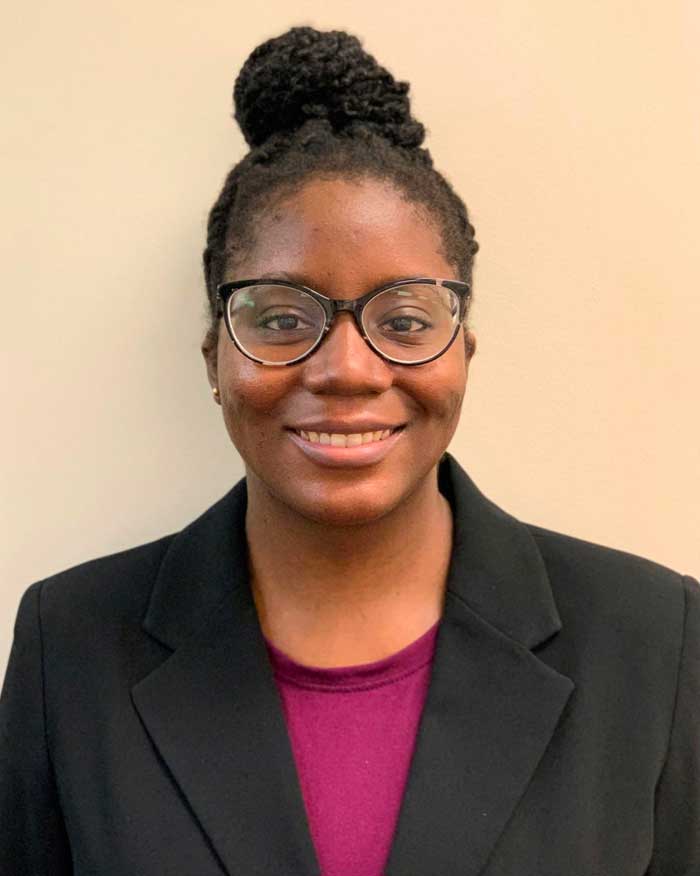
Catrice Taylor
Bachelor's Degree: Economics, Clemson University
Master's Degrees: Applied Economics and Statistics, Clemson University, and Applied Statistics, Kennesaw State University
Professional Objective: To work as an industry data scientist in a corporate environment
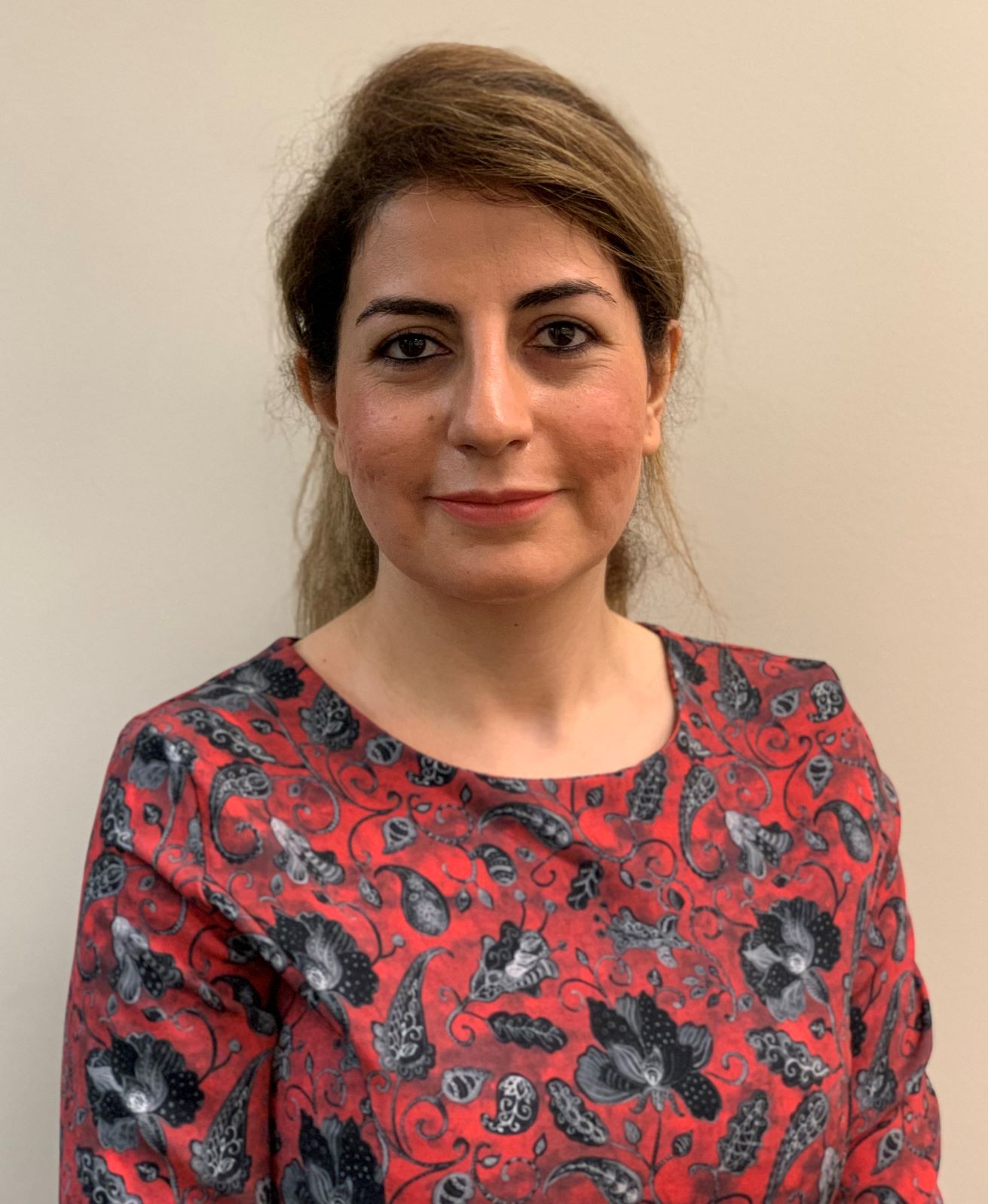
Sahar Yarmohammadtoosky
Bachelor's Degree: Applied Mathematics, Sheikh Bahaei University, Isfahan, Iran
Master's Degree: Applied Mathematics, Iran University of Science & Technology, Tehran, Iran
Courses Taught: Numerical Analysis and Linear Algebra, Iran University of Science & Technology
Publications: Noah, G., Sahar, Y., Anthony P. & Hung, C.C. "ISODS: An ISODATA-Based Initial Centroid Algorithm". Accepted to: 10th International Conference on Information, March 6 - 8, 2021, Hosei University, Tokyo, Japan
Professional Objective: My goal is to become a competent Data Science specialist capable of using my skills to bring meaning to data, getting a faculty position at a university

Martin Brown
Graduation Date: Spring 2024
Dissertation: A Holistic and Collaborative Behavioral Health Detection Framework Using Sensitive Police Narratives
Dissertation Advisors: Dr. Dominic Thomas and Dr. Md Abdullah Al Hafiz Khan

Inchan Hwang
Bachelor’s Degree: Computer Science, Georgia Southwestern State University
Master’s Degree: Software Engineering, Ajou University, South Korea
Courses Tutored: Precalculus, College Algebra, Calculus I at Georgia Southwestern State University
Tutoring College Algebra, Calculus I and II at Academic Skills Center, Georgia Southwestern State University Research Assistant at Intelligence of HyperConnected Systems Lab of Ajou University Fullstack web developer, windows system programmer in the cybersecurity industry Professional Objective: To work in big data analytics, and research and development of machine learning in engineering, and security
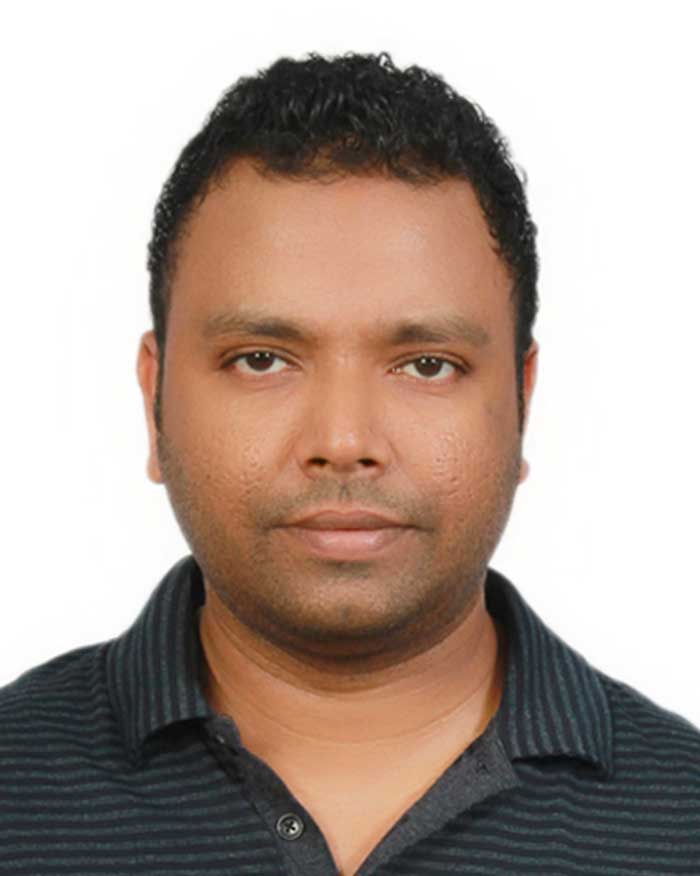
Duleep Prasanna Rathgamage Don
Bachelor's degree: Physics and Mathematics, The Open University of Sri Lanka
Master's degree: Mathematics, Georgia Southern University
- Graduate Teaching Assistant, Georgia Southern University, 2016 - 2018
- Graduate Teaching Assistant, University of Wyoming, 2019 - 2020
Courses Taught: Trigonometry, and Calculus I & II
Publications/Presentations:
- Don, R. D. and Iacob, I. E., ‘DCSVM: Fast Multi-class Classification using Support Vector Machines’, International Journal of Machine Learning and Cybernetics .
- Rathgamage Don, D., Iacob, E., ‘Divide and Conquer Support Vector Machine for Multiclass Classification’, Research Symposium (2018), Georgia Southern University.
- Rathgamage Don, D., Iacob, E., ‘Multiclass Classification using Support Vector Machines’, MAA Southeastern Section Meeting (2018), Clemson University.
Professional Objective: To work in big data analytics, and research and development of machine learning in engineering, and medicine

Linglin Zhang
Bachelor’s Degree: Biological Sciences, Hubei University, China
Master’s Degree: Chemical Biology, University of Michigan and Bioinformatics, Georgia Institute of Technology
Selected Publications: Rebecca Shen, Zhi Li, Linglin Zhang, Yingqi Hua, Min Mao, Zhicong Li, Zhengdong Cai, Yunping Qiu, Jonathan Gryak, Kayvan Najarian. (2018). Osteosarcoma Patients Classification Using Plain X-Rays and Metabolomic Data. 40th Annual International Conference of the IEEE Engineering in Medicine and Biology Society (EMBC). 690-693, 2018.
Professional Objective: To become a researcher in industry or academia. My background in Biology and Bioinformatics could provide me strong theoretical support on a research role in the health industry. The experience of doing an internship at Equifax equipped me of certain knowledge on business cases.
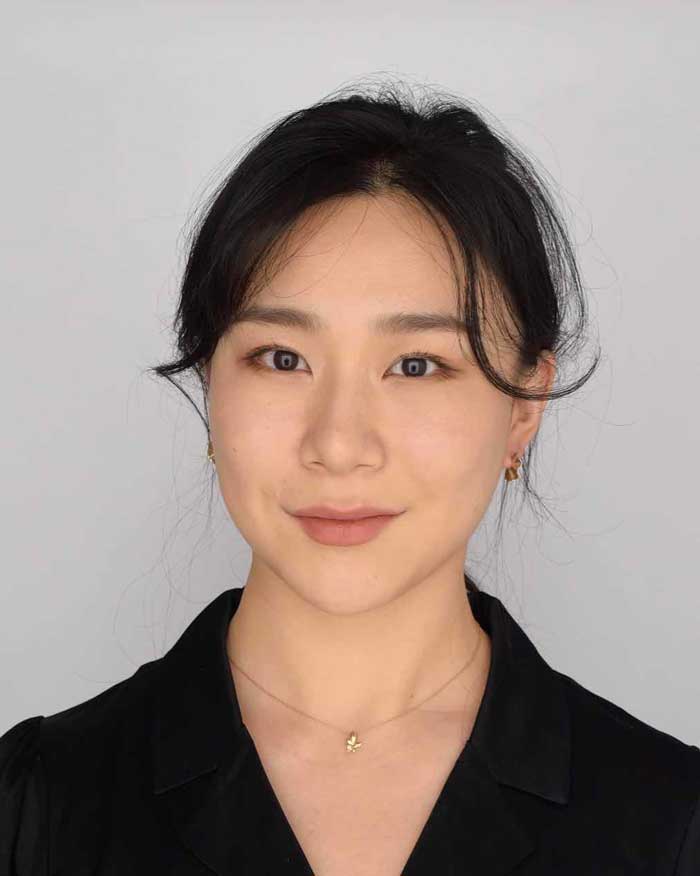
Yihong Zhang
Bachelor’s Degree: Psychology Mathematics Interdisciplinary, Chatham University
Master’s Degree: Mathematics and Statistics Allied with Computer Science, Georgia State University
- Research Assistant - Collaborated with biomedical department to analyze and visualize microarray gene expression data, Facilitated in data pre-processing and machine learning modeling of clinical liver cirrhosis image data, Assisted in feature engineering of image analysis in deep learning for pathology diagnosis with Mayo Clinic’s pilot project.
- Graduate Lab Assistant - Tutored students with statistics and math subjects.
Professional Objective: Make better use of data in healthcare and bioinformatic industry as a data scientist.
2019 - 2020

Trent Geisler
Graduation Date: Summer 2022
Dissertation: Novel Instance-Level Weighted Loss Function for Imbalanced Learning
Dissertation Advisor: Dr. Herman Ray
Current Position: Assistant Professor, Department of Systems Engineering, United States Military Academy West Point
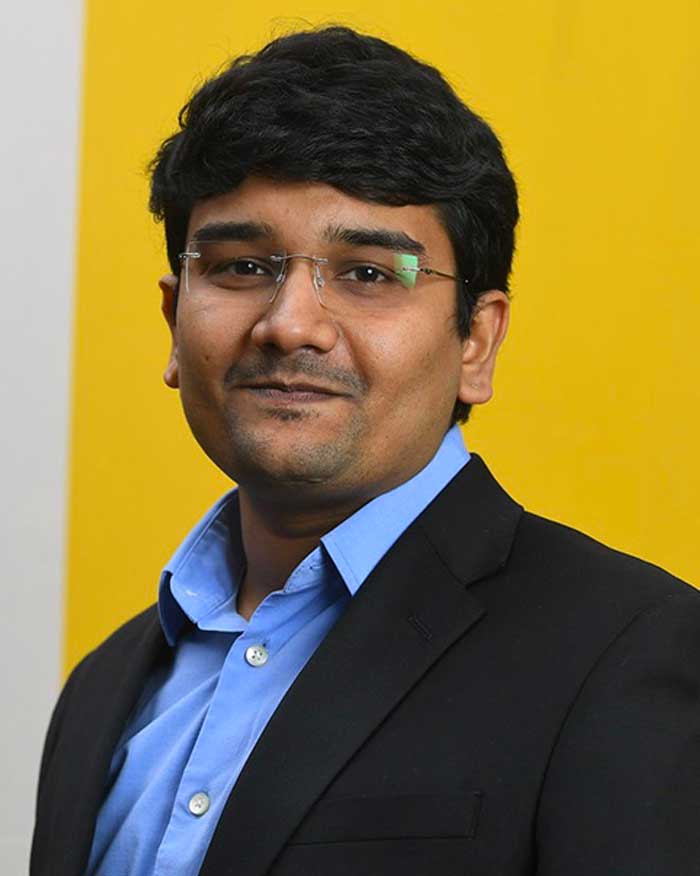
Srivatsa Mallapragada
Dissertation: Multi-Modality Transformer for E-Commerce: Inferring User Purchase Intention to Bridge the Query-Product Gap
Dissertation Advisor: Dr. Ying Xie
Current Position: Data Scientist, Rue Gilt Groupe (RGG)

Sudhashree Sayenju
Graduation Date: Spring 2023
Dissertation: Quantification and Mitigation of Various Types of Biases in Deep NLP Models
Dissertation Advisor: Dr. Ramazan Aygun
Current Position: Lecturer, Data Science and Analytics, Kennesaw State University

Christina Stradwick
Bachelor’s Degree: Music Performance and Mathematics, Marshall University
Master’s Degree: Mathematics with Emphasis in Statistics, Marshall University
Courses Taught: Prep for College Algebra at Marshall University
Selected Presentations:
- Stradwick, C. Exploring the Variance of the Sample Variance. Spring Meeting of the Mathematical Association of America Ohio Section, University of Akron, 2019.
- Stradwick, C., Vaughn, L., Hanan Khan, A. Data Modeling on Insurance Beneficiary Dataset. College of Science Research Expo 2018, Marshall University, 2018. Poster Presentation.
- Stradwick, C. Disease modeling on networks. The 13th Annual UNCG Regional Mathematics and Statistics Conference, University of North Carolina at Greensboro, 2017. Poster Presentation.
Professional Objectives: To work as a researcher in industry or in a laboratory setting. I would like to use my background in mathematics and statistics to develop novel solutions that address limitations in current data science techniques and to apply known data science methods to solve real-world problems.
2018 - 2019

Md Shafiul Alam
Graduation Date: Fall 2022
Dissertation: Appley: App roximate Shap ley Values for Model Explainability in Linear Time
Dissertation Advisor: Dr. Ying Xie
Current Position: AI Framework Engineer, Intel Corporation

Jonathan Boardman
Dissertation: Ethical Analytics: A Framework for a Practically-Oriented Sub-Discipline of AI Ethics
Current Position: Data Scientist, Equifax
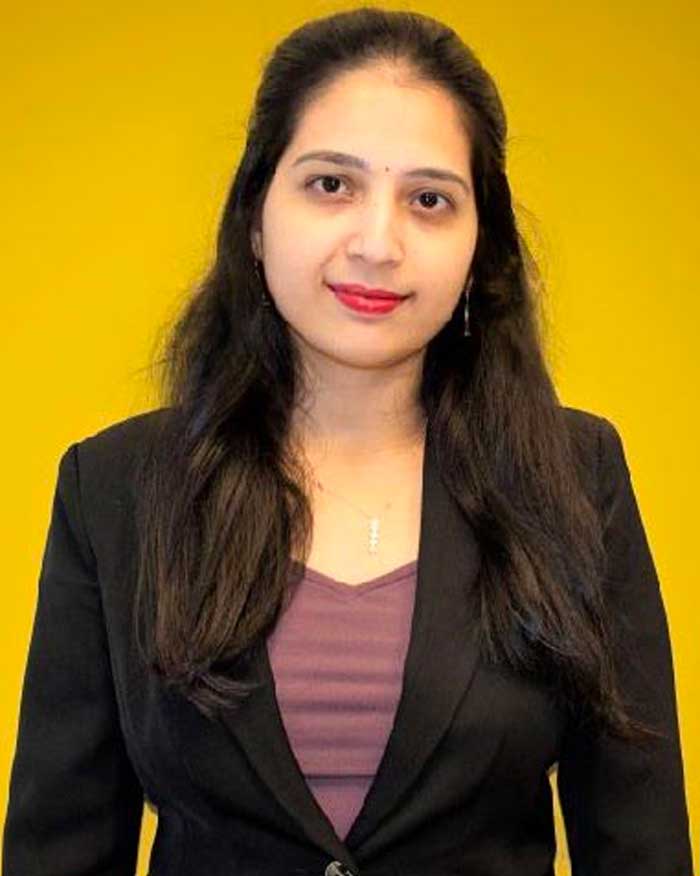
Tejaswini Mallavarapu
Bachelor’s Degree: Pharmacy, Acharya Nagarjuna University, India
Master’s Degree: Computer Science, Kennesaw State University
- Graduate Research Assistant, Kennesaw State University, 2017-present
- Research Analyst, Divis Laboratories, 2013-2014
Selected Publications:
- T. Mallavarapu, Y. Kim, J.H. Oh, and M. Kang, "R-PathCluster: Identifying Cancer Subtype of Glioblastoma Multiforme Using Pathway-Based Restricted Boltzmann Machine," Proceedings of IEEE International Conference on Bioinformatics & Biomedicine (IEEE BIBM 2017), International Workshop on Deep Learning in Bioinformatics, Biomedicine, and Healthcare Informatics, Accepted, 2017.
- M.R. Shivalingam, K.S.G. Arul Kumaran, D. Jeslin, Ch. MadhusudhanaRao, M. Tejaswini, "Design and Evaluation of Binding Properties of Cassia roxburghii Seed Galacto mannan and Moringa oleifera Gum in the Formulation of Paracetamol Tablets," Research Journal of Pharmacy and Technology(RJPT). 3(1): Jan.-Mar. 2010; Page 254-256.
- M.R. Shivalingam, K.S.G. Arul Kumaran, D. Jeslin, Y.V. Kishore Reddy, M. Tejaswini, Ch. MadhusudhanaRao, V. Tejopavan, "Cassia roxburghii Seed Galacto manna— a potential binding agent in the tablet formulation," Journal of Biomedical Science and Research(JBSR), Vol 2 (1), 2010, 18-22
Professional Objective: To be a data scientist in the field of health care or bioinformatics where I can leverage my analytical skills and knowledge towards the advancement of the research field.
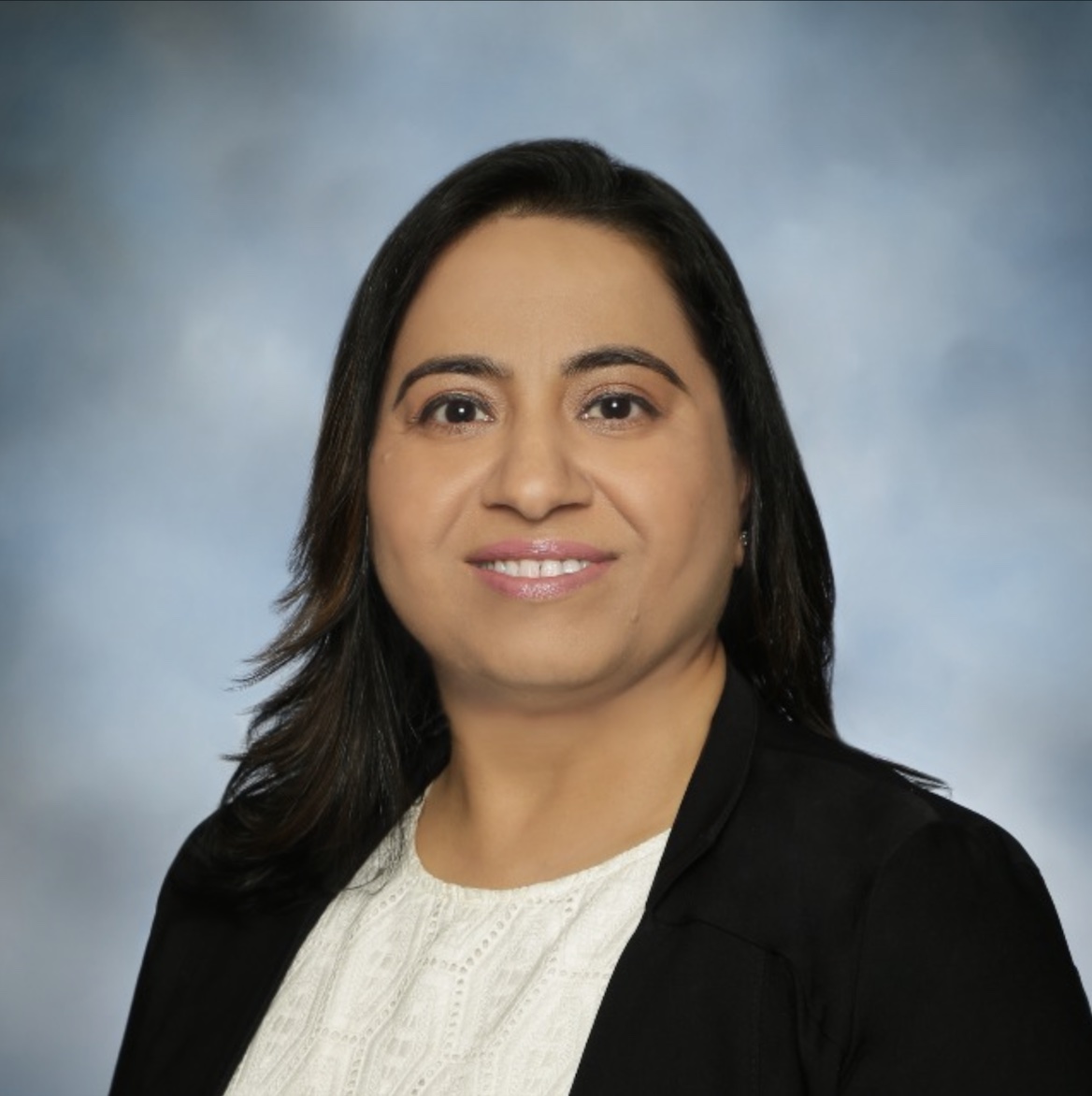
Seema Sangari
Dissertation: Debiasing Cyber Incidents - Correcting for Reporting Delays and Under-reporting
Dissertation Advisor: Dr. Michael Whitman
Current Position: Principal Modeler, HSB

Srivarna Settisara Janney
Bachelor’s Degree: Mechanical Engineering, Visveswaraiah Technological University, India
- Graduate Research Assistant, Kennesaw State University, 2016-2018
- Senior Software Engineer, Torry Harris Business Solutions (THBS), United Kingdom, 2010-2012 and India, 2012-2014
- Software Engineer, Torry Harris Business Solutions (THBS), India, 2007-2010
Selected Publications/Presentations:
- S.S. Janney, S. Chakravarty, “New Algorithms for CS – MRI: WTWTS, DWTS, WDWTS”, One-page research paper, 40th International Conference of IEEE Engineering in Medicine and Biology Society (IEEE EMBC), Jul 2018
- Master thesis presented at Southeast Symposium on Contemporary Engineering Topics (SSCET), UAH Engineering Forum, Alabama, Aug 2018
- Master thesis poster is accepted to be presented at Biomedical Engineering Society (BMES) 2018 Annual Meeting, Oct 2018
- Submitted draft copy for book chapter contribution on “Bioelectronics and Medical Devices”, Elsevier Publisher, May 2018
- Showcased 3MT, Georgia Council of Graduate Schools (GCGS), Apr 2018
- Master thesis presented in workshop for “Medical Signal and Image Processing” at Department of Biotechnology & Medical Engineering, NIT Rourkella, Feb 2018
- S.S. Janney, I. Karim, J. Yang, C.C Hung, Y. Wang, “Monitoring and Assessing Traffic Safety Using Live Video Images”, GDOT project showcase, 4th Annual Transportation Research Expo, Sept 2016
- 1st Place Winner, Graduate Research Project, C-day Poster Presentation, Kennesaw State University, Spring 2018
- People's Choice Award, 3 Minute Thesis (3MT), Apr 2018
- CCSE Dean’s 4.0 Club, Jan 2018
- 3rd Place Winner, Hackathon 2017 - HPCC Systems Big Data
- Foundation of Computer Science, Certified by Kennesaw State University, Jun 2016
- Fundamental of RESTful API Design, Certified by APIGEE, Nov 2014
- Member of HandsOnAtlanta, since 2014
- SOA Associate, Certified by IBM, Jun 2008
Professional Objective: I would like to be a researcher in Data Science and Analytics in medical imaging technologies contributing to advancements that would help medical and healthcare professionals provide value-based and personalized health care. I would like to look at career opportunities in industry and academia that fuel my interest in research.
2017 - 2018

Graduation Date: Summer 2021
Dissertation: Incentive-based Data Sharing and Exchanging Mechanism Design
Dissertation Advisor: Dr. Meng Han
Current Position: Assistant Professor, Saint Joseph's University - Erivan K. Haub School of Business

Mohammad Masum
Dissertation: Integrated Machine Learning Approaches to Improve Classification Performance and Feature Extraction Process for EEG Dataset
Dissertation Advisor: Dr. Hossain Shahriar
Current Position: Assistant Professor, San Jose State University

Lauren Staples
Graduation Date: Fall 2021
Dissertation: A Distance-Based Clustering Framework for Categorical Time Series: A Case Study in the Episodes of Care Healthcare Delivery System
Dissertation Advisor: Dr. Joseph DeMaio
Current Position: Senior Data Scientist, Microsoft
2016 - 2017

Shashank Hebbar
Dissertation: Tree-BERT - Advanced Representation Learning for Relation Extraction
Current Position: Data Scientist, Credigy
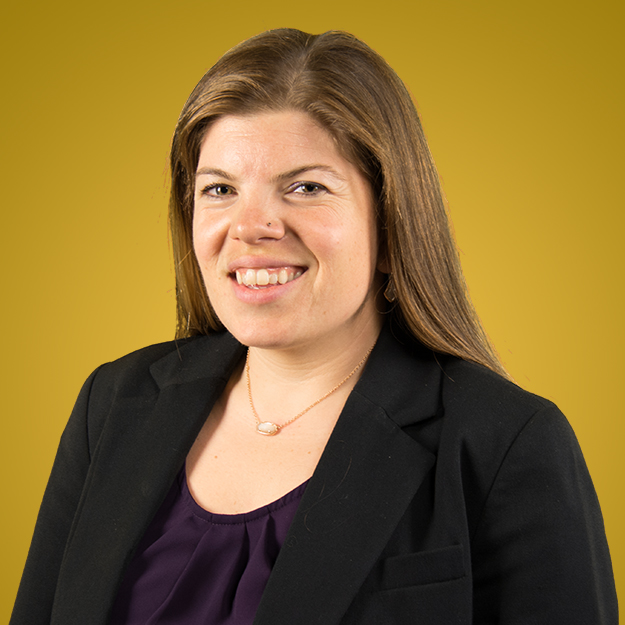
Jessica Rudd
Graduation Date: Summer 2020
Dissertation: Quantitatively Motivated Model Development Framework: Downstream Analysis Effects of Normalization Strategies
Dissertation Advisor: Dr. Herman Ray
Current Position: Senior Data Engineer, Intuit Mailchimp

Graduation Date: Spring 2020
Dissertation: Data-driven Investment Decisions in P2P Lending: Strategies of Integrating Credit Scoring and Profit Scoring
Dissertation Advisor: Dr. Sherry NI
Current Position: Applied Scientist II, Amazon
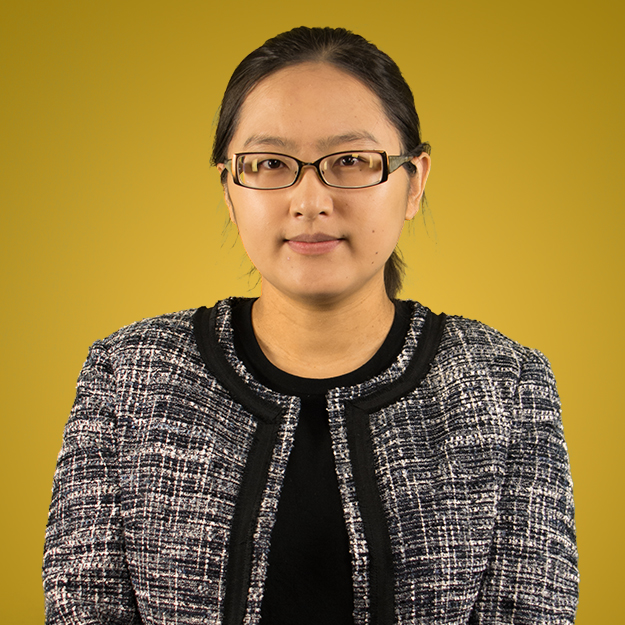
Dissertation: A Novel Penalized Log-likelihood Function for Class Imbalance Problem
Current Position: Data Scientist/Research Engineer, Hewlett Packard Enterprise

Dissertation: Attack and Defense in Security Analytics
Dissertation Advisor: Dr. Selena He
Current Position: NLP Data Scientist, NBME
2015 - 2016

Edwin Baidoo
Graduation Date: Spring 2020
Dissertation: A Credit Analysis of the Unbanked and Underbanked: An Argument for Alternative Data
Dissertation Advisor: Dr. Stefano Mazzotta
Current Position: Assistant Professor, Business Analytics, Tennessee Technological University

Bogdan Gadidov
Graduation Date: Summer 2019
Dissertation: One- and Two-Step Estimation of Time Variant Parameters and Nonparametric Quantiles
Dissertation Advisor: Dr. Mohammed Chowdhury
Current Position: Data Scientist, Variant

Dissertation: Biologically Interpretable, Integrative Deep Learning for Cancer Survival Analysis
Dissertation Advisor: Dr. Mingon Kang
Current Position: Assistant Professor, Chinese Academy of Medical Sciences, Peking Union Medical College

Graduation Date: Spring 2019
Dissertation: Deep Embedding Kernel
Current Position: Assistant Professor, Information Technology, Kennesaw State University

Bob Venderheyden
Graduation Date: Fall 2019
Dissertation: Ordinal Hyperplane Loss
Dissertation Advisor: Dr. Ying Xie
Current Position: Principal Data Scientist, Microsoft
Contact Info
Kennesaw Campus 1000 Chastain Road Kennesaw, GA 30144
Marietta Campus 1100 South Marietta Pkwy Marietta, GA 30060
Campus Maps
Phone 470-KSU-INFO (470-578-4636)
kennesaw.edu/info
Media Resources
Resources For
Related Links
- Financial Aid
- Degrees, Majors & Programs
- Job Opportunities
- Campus Security
- Global Education
- Sustainability
- Accessibility
470-KSU-INFO (470-578-4636)
© 2024 Kennesaw State University. All Rights Reserved.
- Privacy Statement
- Accreditation
- Emergency Information
- Report a Concern
- Open Records
- Human Trafficking Notice
- Skip to content

AnalyticsDegrees.org
PhD in Data Analytics Programs
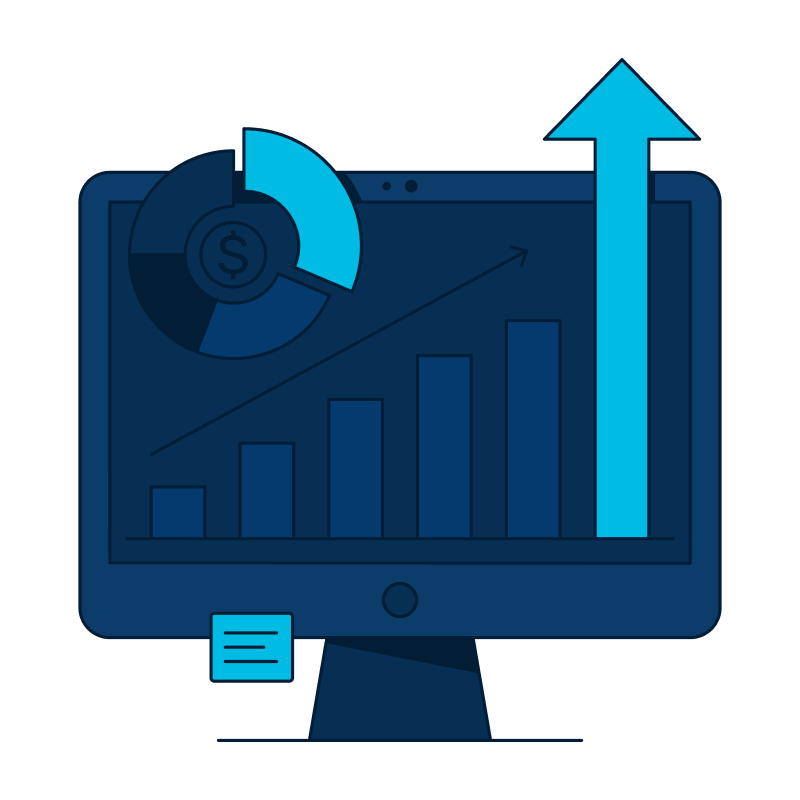
On This Page:
You’re an analytics professional with a talent for research. You’re considering a PhD in Data Analytics as the next logical step in your career, but you’d like to know more about the practicals. Explore different types of analytics doctorates . Dig into details on timelines , coursework , and the dissertation process . Learn about admissions requirements and funding options , including fully-funded doctorates. Find answers to questions about online degrees and employment avenues after graduation. Or skip ahead to our listings of all the PhD in Data Analytics programs in the country.
What Are PhD in Data Analytics Programs?
A PhD in Data Analytics or a closely related field is an interdisciplinary doctorate that focuses on cutting-edge research in the realms of advanced analytics, statistical computing, big data, and data science. Doctoral students in analytics:
- Push the boundaries of analytics in order to solve complex societal & organizational problems and transform decision-making
- Train to be expert practitioners in big data technologies, newly developed statistical methods, and “out of the box” analytical thinking
- Become analytics & data science professors at universities, senior analytics consultants in industry, and government advisors
Can You Earn a PhD in Data Analytics?
Yes. Doctoral programs in data analytics are available, but they are rare. The most popular title for a degree in the realm of data is the PhD in Data Science . Data science is a highly inventive field that builds on analytical foundations, so it makes sense to consider a doctoral program that focuses on innovation & self-guided discoveries.
When you do find a PhD with the word “analytics” in the title , you’re still going to be looking at a doctorate that intersects with the field of data science. Massive data sets, complicated analytics processes, sophisticated predictive models—doctoral students in analytics are schooled in all of these areas (and more).
Note: PhD programs are focused on original research and high-level thinking. If you want a workplace qualification, consider a Master’s in Data Analytics .
Types of Data Analytics Doctorate Programs
We’ve listed some common titles for doctorates in analytics, but we recommend you check the curriculum links in our listings and learn which department/s are offering the program. You should also look up the faculty’s research interests to see if they align with your own ideas for PhD projects. For example:
- If the degree is offered by the Department of Computer Science, a PhD in Data Analytics might be heavy on research into ethics, bias, AI, and building intelligent systems.
- If the degree is offered in partnership with the School of Business, a PhD in Data Analytics could be preoccupied with Machine Learning (ML), risk analysis, and econometrics.
The title of the PhD plays second fiddle to the department.
PhD in Analytics
A PhD in Analytics can often cut across multiple data-driven domains. Think of fields like Business Analytics, Data Science, Operations Research, and more. For instance, at the University of Notre Dame , doctoral students in analytics are able to access a large number of analytics research labs (e.g. gaming, human behavior, data & society, business, etc.) and collaborate with all kinds of partners.
PhD in Big Data Analytics
Doctorates in Big Data Analytics tend to focus on advanced systems & technologies that deal with processing big data (e.g. statistical computing, data mining, etc.), as well as their applications to real-world problems. Some universities, like the University of South Florida , are also interested in examining the human & social implications of analytics (e.g. ethical usage).
PhD in Analytics & Data Science
A PhD in Analytics and Data Science or a PhD in Data Science, Analytics & Engineering is a way for universities to combine data expertise from multiple departments. Yes, advanced analytics & big data processes will be addressed in the curriculum. But you’ll also find a strong emphasis on programming, algorithm creation, and systems development.
PhD in Data Science
Doctoral programs in data science may have more of a “design & develop” feel than analytics doctorates. In addition to exploring advanced analytics & big data applications, PhD in Data Science students are often interested in designing new information systems & tools (e.g. dashboards), creating their own algorithms & models, and exploring the boundaries of AI & Machine Learning (ML).
Note: Interested in industry & corporate analytics applications? Check out the guide to the PhD in Business Analytics .
How Doctorates in Data Analytics Work: Curriculum & Dissertation
Degree structure.
PhD programs in data analytics contain 6 key elements that take 4-5 years to complete on a full-time schedule. You will have to tackle each stage (e.g. core coursework) before you can proceed to the next one (e.g. qualifying exam).
Core Coursework
Qualifying/comprehensive exam, dissertation proposal, dissertation, dissertation defense.
- Year 1: Core coursework and first-year research papers. Assignment of a faculty mentor.
- Year 2: Core coursework, electives, second-year research papers, and the qualifying exam.
- Year 3: Any remaining coursework. Preparing research projects for publication. Dissertation proposal.
- Year 4: Dissertation work under the guidance of a dissertation advisor and advisory committee.
- Year 5: Dissertation work. Research papers & conference submissions. Dissertation defense.
Sample Curriculum
A PhD in Data Analytics or a closely related field will always contain a set of courses in advanced analytics & data science subjects. These courses can come from multiple departments (e.g. Computer Science, Mathematics & Statistics, Industrial Engineering, Psychology, etc.). Examples include:
- Big Data Analytics
- Data Mining
- Theoretical Statistics
- Statistical Computing
- Machine Learning
- Database Systems
- Information Assurance & Security
These are just a few sample course titles! Use the curriculum links in our listings to get a feel for each program’s unique flavor.
Once you’ve tackled the fundamentals of core coursework , you’ll usually be able to choose high-level electives in your particular research interests. For instance, the University of Central Florida offers electives in:
- Advanced computing (e.g. Parallel & Cloud Computation)
- Sophisticated analytics applications (e.g. Interactive Data Visualization)
- Industries (e.g. Industrial Engineering Analytics for Healthcare)
With some programs, you can customize your doctorate to a remarkable extent.
A qualifying exam is designed to test your knowledge of core coursework . It might take the form of a traditional exam, a paper and/or a project. For example, at the University of South Florida , PhD students are required to report on the results of a real-world, big data analytics project and include codes & systems that were developed in the process.
You’ll be required to develop an original idea for a research- or project-based dissertation and present your dissertation proposal to a dissertation advisory committee—experienced faculty members and (occasionally) outside experts who are interested in your area of work.
- A research-based dissertation will explore new realms of analytics research and potential applications.
- A project-based dissertation will involve work on a real-life project—this may be created at a research center or be suggested by an industry partner.
The dissertation proposal often takes the form of a written outline and an oral defense/presentation. If the committee accepts your proposal, you can get to work on your dissertation.
A PhD dissertation is a piece of original research that makes a significant contribution to the theory & practice of a field. In the world of data analytics & data science, dissertations can be research-based or project-based.
Dissertation Titles
Examples of real-life PhD in Data Analytics & Data Science dissertation titles include:
- A Credit Analysis of the Unbanked and Underbanked: An Argument for Alternative Data
- Novel Statistical and Machine Learning Methods for the Forecasting and Analysis of Major League Baseball Player Performance
- Optimal Analytical Methods for High Accuracy Cardiac Disease Classification and Treatment Based on ECG Data
- The Intelligent Management of Crowd-Powered Machine Learning
- Forecasting the Prices of Cryptocurrencies using a Novel Parameter Optimization of VARIMA Models
- Classification with Large Sparse Datasets: Convergence Analysis and Scalable Algorithms
While you are writing up your dissertation, many universities will also expect you to be submitting related research papers to peer-reviewed journals & industry conferences.
The final step in the PhD process is the dissertation defense. You’ll be required to present your dissertation findings to your dissertation advisory committee and defend your research ideas in an oral & visual presentation. This will be followed by questions and a discussion.
It’s not as intimidating as it sounds. By this stage in your education, you will know your research inside-out and will have brainstormed many of the potential questions with your dissertation advisor. You can prepare for a defense by observing other student defenses, practicing with mock presentations, and reading up on the work of committee members.
PhD in Data Analytics: Admissions
Doctorate in data analytics: what it takes to get in.
Every PhD program in data analytics is going to have a unique set of admissions requirements! When you’re putting together a shortlist of doctorates, use the admissions links in our listings to save yourself time & trouble. You can decide if the program suits your level of expertise and education.
Doctoral programs in tech-driven disciplines—especially ones that are fully funded —are extremely competitive. You can stand out from the crowd by:
- Examining your entire application to see if you can make up for weaknesses (e.g. lower grades) with strengths (e.g. real-world projects)
- Matching your research interests to the university, department & research labs offering the program
- Collaborating with experienced analytics practitioners to co-author papers & publications
- Attending industry events and making connections that will help in your research
- Earning professional certificates to fill in any skills gaps
Degree Requirements
Your degree should be in a discipline that’s relevant to your area of research interest in the PhD. For a data analytics doctorate, that might mean a degree in statistics, data analytics, computer science, economics, or similar. The standard GPA requirement is 3.0 GPA or higher.
- Bachelor’s Degree Entry: Some doctoral programs in data analytics & data science are willing to consider applicants with a bachelor’s degree.
- Master’s Degree Entry: Some doctoral programs are only looking for candidates with a master’s degree.
If you’re an undergraduate and you like the look of a PhD that only accepts master’s candidates, ask the program coordinator if you can earn an MS through the same university. Most doctoral programs have a “Master’s Along the Way” option.
Skills & Proficiencies
PhD candidates in analytics must be ready to tackle advanced coursework and high-level research. So universities will usually want to see evidence of proficiency/course credits in:
- Statistics, calculus & linear algebra
- Common analytical programming languages (e.g. R, Python, SAS, etc.)
- Analytics fundamentals (e.g. database management systems)
If you don’t have an undergraduate or master’s degree in analytics or a closely related field, universities will be poring over your transcripts & résumé to make sure you can handle any technical coursework.
General Requirements
In addition to your degree transcripts, almost all PhD programs in data analytics & data science fields will want to see:
- GRE or GMAT scores
- Letters of recommendation
- Statement of purpose
- TOEFL scores for non-English speaking international applicants
PhD in Data Analytics: Tuition & Funding
How to fund the phd.
Doctoral programs in data analytics & data science fall into 2 broad categories:
- Fully funded PhD programs
- Tuition-driven PhD programs
As you might expect, fully funded doctorate programs at strong universities are hard to get into!
Fully Funded PhD Programs
A number of STEM doctorates at research universities are fully funded. The university will waive all tuition costs and provide you with a living stipend as compensation for teaching & research activities. Many PhD students work as Teaching Assistants (TAs) and Research Assistant (RAs) during their doctoral studies.
Talk to the PhD program coordinator and check the fine print when you’re considering these programs.
- You may (or may not) qualify for on-campus housing and university health insurance.
- You may (or may not) qualify for conference stipends, overseas internships, and other perks.
- You may (or may not) be expected to pay for miscellaneous university fees.
- You may receive funding for Years 1-4 of your degree, but Year 5 support could be conditional on strong academic performance.
Tuition-Driven PhD Programs
You’ll also find doctoral programs in analytics & data science that do not offer any funding. They’ll expect you to pay for the degree out of your own pocket. At a private university, a PhD could cost upwards of $60,000-$80,000 in tuition alone.
So tread carefully! If you don’t qualify for fully funded PhD programs and you believe that a doctorate is essential for your career goals, consider applying to a PhD program at a public university in your state—UCF’s in-state tuition for a PhD in Big Data Analytics is very reasonable.
You will also need to look into postgraduate loans, private scholarships & fellowships, employer reimbursement, and teaching & research job opportunities to offset your costs.
Online PhD in Data Analytics Programs
Can you earn an online phd in data analytics.
Yes—but we would caution against them. There are a few universities that offer online doctorates in data analytics, but they tend to be for-profit (e.g. Colorado Tech) or focused on executive-level training instead of research (e.g. DBA in Data Analytics from the University of the Southwest).
You’ll have a little more luck in finding online doctorates in data science, but they still won’t be offered by top-tier universities.
Why Are Online PhD Programs in Analytics Hard to Find?
Prestigious research universities & high-ranking schools are very cautious about maintaining their reputation for quality. They want doctoral students in data analytics & data science to:
- Attend classes in advanced topics, ask questions, and follow-up with faculty
- Have unfettered access to the university’s research centers, labs, and technical facilities
- Be able to teach undergraduates and conduct research in-person
- Meet with their dissertation advisor on a regular basis
- Network with visiting experts and fellow students
We agree with them. At this level, we highly recommend you choose an on-campus doctoral degree.
Career Prospects for PhD in Data Analytics Graduates
A PhD in Data Analytics or a closely related field is a super-specialized degree. You don’t need a doctorate to pursue a career in analytics & data science. Many senior-level practitioners simply have a degree like a Master’s in Data Analytics (or a similar title) and a lot of on-the-job experience.
However, a doctorate in analytics is an excellent choice for aspiring:
- University Professors: If you wish to teach analytics & data science at a college or university, you will probably need a research-focused doctorate. At the University of Notre Dame, 80% of its PhD in Analytics graduates go into academia.
- High-Level Researchers: PhD graduates work in think tanks, industry research labs, and university research centers where exciting discoveries are taking place.
- Data Science & Analytics Consultants: You may wish to act in an advisory capacity for Wall Street, Silicon Valley, and other major centers of industry.
- Senior Research Positions: Some jobs in major tech companies, data-intensive businesses & financial companies (e.g. Senior Statistician) will require top-level research skills.
PhD Data Analytics FAQs
What should i look for in a data analytics doctoral program.
When you’re starting to put together a shortlist of doctoral programs, consider the following aspects:
- Funding Options: The best choice is going to be a fully funded PhD from a highly ranked & highly regarded university that includes teaching & research assistantships.
- Departmental Reputation: Which schools & departments are offering the degree? What kinds of unique benefits do they offer students? How much research funding do they receive?
- Faculty Expertise: Faculty profiles will be posted on the PhD program website. Read their bios, meet them for a virtual coffee, and learn more about their research & industry work. These people will become your advisors & mentors.
- Access to Resources: Will you have access to top-of-the-line analytics tools, commercial resources, and large-scale infrastructures? Can you work on projects within a major analytics research lab or center?
- Career Preparation: A strong PhD program will prepare you for the job market after graduation. Does the curriculum include opportunities for you to submit research papers to peer-reviewed journals? Does it offer stipends for conference travel? Does it bring in visiting experts for seminars?
What is a STEM Doctorate?
STEM stands for Science, Technology, Engineering & Mathematics. A STEM doctorate is any PhD—including the PhD in Data Analytics and the PhD in Data Science—that contains at least 50% of coursework in these fields.
- Are you an international student? Ask if the doctoral program has a “STEM designation” from the U.S. Department of Homeland Security (DHS). Students on an F-1 Visa can apply for Optional Practical Training (OPT) /temporary employment after graduation. Having a STEM-designated degree extends the OPT period from 12 months to 36 months.
- STEM programs often receive a fair amount of funding from the government and private industries. That means universities may be able to offer fully funded PhD programs to multiple students.
Is a PhD in Data Analytics Worth It?
Only if you have a specific career goal in mind. A PhD in Data Analytics or a closely related field is going to be time-consuming, challenging, and heavy on research. At least 4-5 years of your life will be devoted to earning it, so you and your family need to be prepared for the journey.
Unsure about your decision? Talk to analytics professionals who have already gone through the PhD gauntlet. You’ll find doctoral graduates on LinkedIn, at industry conferences , and within faculty directories on university websites. Be prepared to talk to them about your research interests and your goals.
All Phd in Data Analytics Programs
Arizona state university.
School of Computing and Augmented Intelligence
Tempe, Arizona
PhD in Data Science, Analytics, and Engineering
University of arizona.
Department of Biosystems Engineering
Tucson, Arizona
PhD in Biosystems Analytics & Technology
University of central florida.
College of Sciences
Orlando, Florida
University of South Florida-Main Campus
Muma College of Business
Tampa, Florida
Georgia State University
Robinson College of Business
Atlanta, Georgia
PhD in Business Administration & Digital Innovation - Data Science & Analytics
Kennesaw state university.
School of Data Science and Analytics
Kennesaw, Georgia
Doctor of Philosophy in Analytics and Data Science
University of notre dame.
Mendoza College of Business
Notre Dame, Indiana
University of Kansas
School of Business
Lawrence, Kansas
PhD in Analytics and Operations
Central michigan university.
College of Science and Engineering
Mount Pleasant, Michigan
PhD in Statistics and Analytics
North carolina, north carolina state university at raleigh.
Center for Geospatial Analytics
Raleigh, North Carolina
PhD in Geospatial Analytics
Pennsylvania, pennsylvania state university-main campus.
College of the Liberal Arts
University Park, Pennsylvania
PhD in Human Development and Family Studies and Social Data Analytics
Phd in informatics and social data analytics, phd in political science and social data analytics, phd in psychology and social data analytics, phd in social data analytics, phd in sociology and social data analytics, phd in statistics and social data analytics.

- Youth Program
- Wharton Online
Statistics and Data Science
Wharton’s phd program in statistics and data science provides the foundational education that allows students to engage both cutting-edge theory and applied problems. these include theoretical research in mathematical statistics as well as interdisciplinary research in the social sciences, biology and computer science..
Wharton’s PhD program in Statistics and Data Science provides the foundational education that allows students to engage both cutting-edge theory and applied problems. These include problems from a wide variety of fields within Wharton, such as finance, marketing, and public policy, as well as fields across the rest of the University such as biostatistics within the Medical School and computer science within the Engineering School.
Major areas of departmental research include:
- analysis of observational studies;
- Bayesian inference, bioinformatics;
- decision theory;
- game theory;
- high dimensional inference;
- information theory;
- machine learning;
- model selection;
- nonparametric function estimation; and
- time series analysis.
Students typically have a strong undergraduate background in mathematics. Knowledge of linear algebra and advanced calculus is required, and experience with real analysis is helpful. Although some exposure to undergraduate probability and statistics is expected, skills in mathematics and computer science are more important. Graduates of the department typically take positions in academia, government, financial services, and bio-pharmaceutical industries.
For information on courses and sample plan of study, please visit the University Graduate Catalog .
Get the Details.
Visit the Statistics and Data Science website for details on program requirements and courses. Read faculty and student research and bios to see what you can do with a Statistics PhD.

Statistics and Data Science Doctoral Coordinator
Dr. Bhaswar Bhattacharya Associate Professor of Statistics and Data Science Associate Professor of Mathematics (secondary appointment) Email: [email protected] Phone: 215-573-0535
- Skip to Content
- Skip to Main Navigation
- Skip to Search

Indiana University Indianapolis Indiana University Indianapolis IU Indianapolis

- Undergraduate Majors
- Apply to the Accelerated Program
- Master's Degrees
- Doctoral Degrees & Minors
- Minors & Certificates
- General Education
- Artificial Intelligence
- Bioinformatics
- Computer Science
- Data Science
- Health Informatics
- Health Information Management
- Library & Information Science
- Informatics
- Media Arts and Science
- Study Abroad in Greece
- Study Abroad in Finland
- Micro-Credentials
- Freshman Applicants
- Returning Students
- Master's Degree
- Doctoral Program
- Graduate Certificates
- Change or Declare your Major
- Admitted Students
- Student Ambassadors
- Virtual Tour
- Undergraduate Webinars & Information Sessions
- Graduate Student Information Sessions
- Summer Camp
- Earn College Credit
- Biomedical Informatics Challenge
- Computer Science Challenge
- Incoming Undergraduate Scholarships
- Undergraduate Scholarships
- Graduate Scholarships
- Accelerated Program Cost & Aid
- Travel Funding
- Tuition Reduction
- Peer Advisors
- Forms & Policies
- Become a Student Leader
- Student Organizations
- Honors Program
- Laptop Requirements
- Equipment Checkout
- Luddy Knowledge Base
- Student Facility Access
- Biomedical Informatics B.S.
- Health Information Management B.S.
- Informatics B.S.
- Media Arts and Science B.S.
- Bioinformatics M.S.
- Health Informatics M.S.
- Applied Data Science M.S.
- Human-Computer Interaction M.S.
- Master of Library and Information Science
- Media Arts and Science M.S.
- Find a Job or Internship
- F-1 Students & Internships
- Library & Information Science Internships
- Internship Checklist
- Forage: Virtual Job Simulations
- Forage: Earn Credit
- Network with LinkedIn
- Big Interview
- Elevator Pitch
- Cover Letter
- Informational Interview
- Interviewing
- Technical Interviewing
- The Offer Process
- The Negotiation Process
- Freelance Work
- Grant Proposal Writing
- Schedule an Appointment
- Request a Career Services Presentation
- Featured Employer Days
- Resume Reviews
- Portfolio Reviews
- Presentations and Workshops
- Employer Career Fair Registration
- Research Centers & Labs
- Undergraduate Research
- Research Events
- Luddy Strategic Plan
- Meet Fred Luddy
- Faculty Openings
- Faculty Directory
- Staff Directory
- Media Requests
- Contact Admissions
- Request Undergraduate Information
- Request Graduate Information
- Get involved
- Advisory Boards
- Advisory Board
- Department Blog
- Strategic Plan
- Multimedia Stories
- News Archive
- Luddy Leads Blog
- Student Showcases
- LIS Industry Speaker Series
Luddy School of Informatics, Computing, and Engineering
- Alumni & Giving
- Departments
- News & Blog
Discover novel solutions to data research problems
There’s no choice but to lead when you’re breaking new ground. Guide rapid development in an emerging field when you earn our Ph.D. in Data Science.
- Degrees & Courses
Data Science Ph.D.
A dynamic data science environment.
Graduates of our program—the first of its kind in both Indiana and the Big Ten—develop the skills to make pioneering research contributions to data science theory and practice in academic and the industrial sectors.
Our students acquire the skills to develop inventive and creative solutions to data research problems—solutions that demonstrate a high degree of intellectual merit and the potential for broader impact. The Ph.D. curriculum also prepares students to make research contributions that advance the theory and practice of data science.
A leader in data science research
The Data Science Ph.D. Program at IU Indianapolis provides a world-class education and research opportunities. Ph.D. students in the program learn fundamental Data Science methods while pursuing independent, original research in a broad variety of topics, including:
- Novel techniques for Natural Language Processing and Text Analytics.
- Applications of AI to social welfare, digital governance, cultural heritage, biomedical sciences, and environmental sustainability.
- Intelligent conversational agents and models of Human-AI collaboration.
- Data Visualization and Human-Data Interaction.
Meet our faculty
The program is in the midst of a major expansion, with over 50 graduate students joining the program in the past year alone. Multiple faculty in our department have secured high-profile research grants, including three active CAREER awards, the National Science Foundation’s most prestigious award for early-career faculty. The IU Indianapolis campus hosts the newly created Institute of Integrative Artificial Intelligence, providing an interdisciplinary nexus between Data Science, AI, and various science and engineering fields.
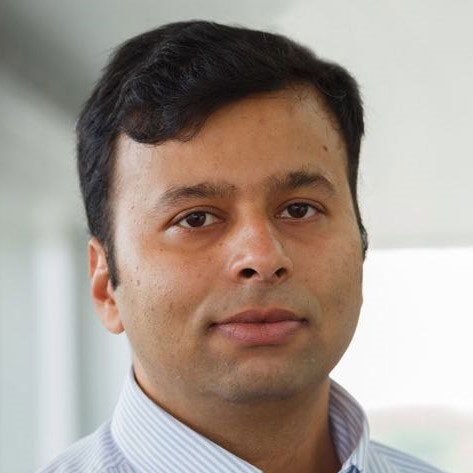
Sunandan Chakraborty
Assistant Professor, Data Science

Sarath Chandra Janga
Associate Professor, Bioinformatics, Data Science

Leon Johnson
Lecturer, Data Science

Kyle M. L. Jones
Associate Professor, Library and Information Science, Data Science

Bohdan Khomtchouk
Assistant Professor, Bioinformatics, Data Science

Angela Murillo
Assistant Professor, Library and Information Science, Data Science

Saptarshi Purkayastha
Associate Professor, Data Science, Health Informatics

Khairi Reda
Associate Professor, Data Science, Human-Computer Interaction

Elie Salomon
Lecturer, Data Science; Library and Information Science
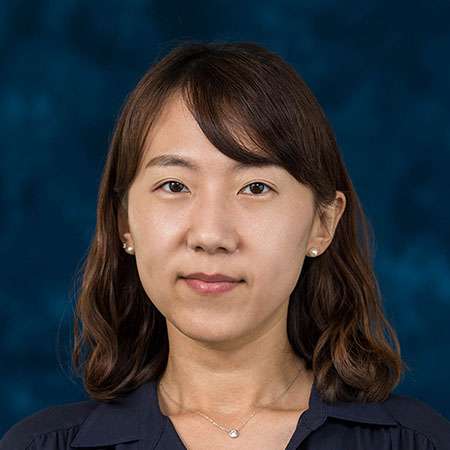
Ayoung Yoon
Get your questions answered
Request information.
Contact our graduate admissions team and get your questions answered.
Meet our student ambassadors
Get to know our student ambassadors and find out what life at Luddy is like.
Information Sessions
Register for a virtual information session.
Ready to get started?
- Register for an info session
- Learn how to apply
Luddy School of Informatics, Computing, and Engineering resources and social media channels
- Schedule a Visit
Additional links and resources
- Degrees & Majors
- Scholarships
Happening at Luddy
- Pre-college Programs
Information For
- Current Students
- Faculty & Staff Intranet
Luddy Indianapolis

- Youth Program
- Wharton Online
PhD Program
Wharton’s PhD program in Statistics provides the foundational education that allows students to engage both cutting-edge theory and applied problems. These include problems from a wide variety of fields within Wharton, such as finance, marketing, and public policy, as well as fields across the rest of the University such as biostatistics within the Medical School and computer science within the Engineering School.
Major areas of departmental research include: analysis of observational studies; Bayesian inference, bioinformatics; decision theory; game theory; high dimensional inference; information theory; machine learning; model selection; nonparametric function estimation; and time series analysis.
Students typically have a strong undergraduate background in mathematics. Knowledge of linear algebra and advanced calculus is required, and experience with real analysis is helpful. Although some exposure to undergraduate probability and statistics is expected, skills in mathematics and computer science are more important. Graduates of the department typically take positions in academia, government, financial services, and bio-pharmaceutical industries.
Apply online here .
Department of Statistics and Data Science
The Wharton School, University of Pennsylvania Academic Research Building 265 South 37th Street, 3rd & 4th Floors Philadelphia, PA 19104-1686
Phone: (215) 898-8222
- Contact Information
- Course Descriptions
- Course Schedule
- Doctoral Inside: Resources for Current PhD Students
- Penn Career Services
- Apply to Wharton
- Financial Aid
Ph.D. Specialization in Data Science
The ph.d. specialization in data science is an option within the applied mathematics, computer science, electrical engineering, industrial engineering and operations research, and statistics departments..
Only students already enrolled in one of these doctoral programs at Columbia are eligible to participate in this specialization. Students should fulfill the requirements below in addition to those of their respective department's Ph.D. program. Students should discuss this specialization option with their Ph.D. advisor and their department's director for graduate studies.
Applied Mathematics Doctoral Program
Computer Science Doctoral Program
Decision, Risk, and Operations (DRO) Program
Electrical Engineering Doctoral Program
Industrial Engineering and Operations Research Doctoral Program
Statistics Doctoral Program
The specialization consists of either five (5) courses from the lists below, or four (4) courses plus one (1) additional course approved by the curriculum committee. All courses must be taken for a letter grade and students must pass with a B+ or above. At least three (3) of the courses should come from outside the student’s home department. At least one (1) course has to come from each of the three (3) thematic areas listed below.
Specialization Requirements
- COMS 4231 Analysis of Algorithms I
- COMS 6232 Analysis of Algorithms II
- COMS 4111 Introduction to Databases
- COMS 4113 Distributed Systems Fundamentals
- EECS 6720 Bayesian Models for Machine Learning
- COMS 4771 Machine Learning
- COMS 4772 Advanced Machine Learning
- IEOR E6613 Optimization I
- IEOR E6614 Optimization II
- IEOR E6711 Stochastic Modeling I
- EEOR E6616 Convex Optimization
- STAT 6301 Probability Theory I
- STAT 6201 Theoretical Statistics I
- STAT 6101 Applied Statistics I
- STAT 6104 Computational Statistics
- STAT 5224 Bayesian Statistics
- STCS 6701 Foundations of Graphical Models (joint with Computer Science)
Information Request Form
Ph.d. specialization committee.
- View All People
- Faculty of Arts and Sciences Professor of Statistics
- The Fu Foundation School of Engineering and Applied Science Professor of Computer Science
Richard A. Davis
- Faculty of Arts and Sciences Howard Levene Professor of Statistics
Vineet Goyal
- The Fu Foundation School of Engineering and Applied Science Associate Professor of Industrial Engineering and Operations Research
Garud N. Iyengar
- The Fu Foundation School of Engineering and Applied Science Vice Dean of Research
- Tang Family Professor of Industrial Engineering and Operations Research
Gail Kaiser
Rocco a. servedio, clifford stein.
- Data Science Institute Interim Director
- The Fu Foundation School of Engineering and Applied Science Wai T. Chang Professor of Industrial Engineering and Operations Research and Professor of Computer Science
John Wright
- The Fu Foundation School of Engineering and Applied Science Associate Professor of Electrical Engineering
- Data Science Institute Associate Director for Academic Affairs
- Skip to primary navigation
- Skip to main content
- Skip to primary sidebar
PhD in Data Analytics Programs
A PhD in data analytics prepares professionals to work in data-driven fields, including research, business, healthcare, and government.
The most common reason people pursue a PhD in a data-related field is that they are passionate about data and would like to have a career that involves research and making discoveries, usually within a sub-field.
Data analytics PhD programs allow students to get an in-depth knowledge of research methods and topics they will use throughout their careers. Like other research-oriented doctoral degrees, a PhD in analytics is most often pursued by people interested in academic careers.
Ad techguide.org is an advertising-supported site. Clicking in this box will show you programs related to your search from schools that compensate us. This compensation does not influence our school rankings, resource guides, or other information published on this site. Got it! Featured Data Analytics Doctorate
Although, increasingly, data analytics PhDs are also employed by technology companies to help improve products, services, or business opportunities.
If you are curious to know more about research in the field of data and analytics, these research interests can be divided majorly into two different areas — methods and applications.
Applications of a PhD in Analytics
Examples of research that improves methods and techniques of data utilization.
Method-based data analytics PhD research focuses on gaining a deeper understanding of algorithms used in analytics. This method of research can involve any of the following:
- Research involving understanding algorithms has led to tremendous growth in analytical tools with improved deep-learning performances on large-scale data.
- Researchers have also been investing their time in understanding methods to collect data with a low signal-to-noise ratio, working with incomplete data, or generating synthetic data to understand natural phenomena where data is not readily available or rare. Few others involve researching methods of combining data from sources that aren’t of the same type, e.g., voice data with self-reported psychiatric questionnaires to understand mood and emotions.
- As people and organizations are highly aware of how crucial data can be, there have been increasing reports of data thefts and fraud, which leaves vulnerable people at a loss. One area of research crucial in the data world is ethics and data privacy.
- With the explosive growth of data, ongoing research has made tremendous growth in developing storage systems to improve data availability with consistency in real-time analysis.
Examples of research that utilize data-related techniques to improve or create applications in a given field
Another common data analytics PhD research area involves understanding how other scientists, researchers, and practitioners apply data analytics to other fields. These areas of applications range widely, not just limited to finance or medicine but also “social good” projects.
Examples of research in social good projects solve specific crisis-related challenges, such as responses to natural and human-made disasters in search and rescue missions and the outbreak of disease. Other examples include using analytics to solve environmental challenges, education, criminal justice, etc.
Best PhD in Data Analytics Degree Programs for 2024
Florida atlantic university, grand canyon university, kennesaw state university, university of central florida, university of massachusetts boston, university of south florida, university of the southwest.
These rankings were compiled from data accessed in December 2023 from Integrated Post-Secondary Education Data System (IPEDS) and College Navigator (both services National Center for Education Statistics). Tuition data was pulled from individual university websites and is current as of December 2023. If available, we also use additional criteria such as accreditation or designations by outside organizations or agencies.
PhD in Data Analytics Curriculum
A PhD in data analytics has an intensive academic workload, generally completed between four and five years. Since the data industry has emerged only in the last decade, institutions that provide Ph.D. solely in data analytics are hard to find. Data analytics-related specialization is tied to either STEM or business-related research programs.
Components of PhD in Data Analytics
Here is a general overview of the requirements that are needed to complete this degree program:
Credit Requirements
Every PhD program has requirements to complete a certain amount of credits. These credits could be related to foundational or advanced-level qualitative and quantitative methods in statistics.
Based on your interest and flexibility in the program, the institution may offer you an option of cognate courses. The course curriculum is similar to the master’s-level program with few additions of research-related classes.
Pre-Candidacy Research Projects
The first one or two years in the program prepare you for admission to candidacy by working on research projects. These research projects also help you develop the skills necessary to frame questions and solve real-world data problems.
Preliminary or Qualifying Examination
Every PhD program requires its students to go through a qualifying exam. These exams test their skills to meet candidacy requirements. These pre-candidacy exams assist in fulfilling the requirement of having the theoretical and practical knowledge needed to work on your research project.
Teaching Requirement
Almost all PhD programs require the students to teach undergraduate-level courses or assist the professor in their teaching classes. These opportunities and experiences prepare you for an academic career.
Dissertation Proposal
The dissertation proposal contains the hypothesis of your research that should meet the standards of publications in data analytics. The proposal needs to be approved by the committee of faculty members before any proceedings to work on it.
Successful Dissertation Defense
Students are expected to present their original work on the dissertation proposal. They are expected to be experts in their data-related dissertation topic and defend their analysis. This is an important aspect of your PhD in analytics as it signifies that the student has successfully grasped all the necessary skills required to conduct their own independent research post-degree completion.
Optional Requirements
A Ph.D. is not just about taking credits and completing qualifying exams. During this program, there are many opportunities that a student is likely to benefit from. Attending data analytics conferences and getting internships during school breaks help students exchange research knowledge and form social connections necessary for job search.
Since the data field evolves at a much faster rate, it keeps students abreast of the latest trends in the data industry. Conferences are likely to provide students with discounted academic prices to attend them. Online platforms like Kaggle give opportunities to network, form teams, and participate in online challenges to showcase your skills.
Some institutions can provide you with a data analytics master’s degree if you can complete more than two years of your program but cannot continue further.
PhD in Data Analytics Online
There are many online educational opportunities available, especially in higher education. Like a PhD in data analytics online, online degrees offer a wide range of flexibility in terms of timing, workflow, and geographic location.
Leading universities offer programs that can bring the best of their faculty research to the masses. Many great data analytics master’s programs are now entirely online.
But, there are fewer than 100 percent PhD in data analytics programs online (although more are being created and launched to meet the uptick in demand and because educational formats are changing rapidly).
One of the main reasons doctoral programs are still taught mainly in traditional settings is that they require much collaborative research. Most data analytics PhD programs also require some teaching component, which is not primarily handled in person.
But the world is changing fast, and colleges and universities are adapting quickly to both the needs of students and the needs of an evolving workforce. So stay tuned, and keep track of updates to your favorite data analytics programs. Be sure to ask about remote or online options and possibilities when contacting traditional in-person programs.
PhD in Big Data Analytics
Big data is a term that was popularized in the last decade and refers to the classification and organization of massive data sets.
The reason experts or PhDs can wrangle big data is that the world continues to produce new data at an exponential rate.
By way of illustration, consider this statistic about creating new data; according to the site Statista , “The total amount of data created, captured, copied, and consumed globally is forecast to increase rapidly, reaching 64.2 zettabytes in 2020.
Over the next five years up to 2025, global data creation is projected to grow to more than 180 zettabytes. In 2020, the amount of data created and replicated reached a new high.” For reference, the amount of data collected worldwide in 2010 was estimated to be two zettabytes.
There is a lot of enthusiasm about the trends and patterns found within massive data sets. Researchers in healthcare and agriculture are working with big data to find answers to questions ranging from cancer outcomes to crop outputs.
Given the new research opportunities made possible by big data, it makes sense that a specialty Ph.D. in big data analytics is emerging in university analytics graduate programs.
Career Paths for Data Analytics PhDs
As we mentioned initially, there are many potential career pathways for data analytics PhDs. This kind of degree often has a home in academia, but businesses and organizations are increasingly looking for researchers and practitioners of data analytics.
Academic Positions
- Appointed to the research staff, whose primary goals are to extend their education and experience. Although they hold a doctoral degree, they are not considered independent researchers and cannot serve as principal investigators. Some teaching duties may also be required. Positions are often for a fixed term ranging from six months to three years.
- Average Salary: $85,959
- Typically the first step to tenure and conducting independent research. Once they complete tenure, they may be given the title of a professor. The tenure track is often a long journey of evaluating an associate professor’s publications, research, and teaching. The tenure track lasts somewhere between five to seven years.
- Average Salary: $80,057
Industry Positions
- By wrangling with data to develop meaningful insights, data scientists help organizations find and solve problems related to products or services. Combining computer science, statistics, and business knowledge, data scientists assist organizations in making objective decisions using data-driven strategies.
- Average Salary: $122,738
- Unlike data scientists or data engineers, research scientists don’t work on product development. Instead, they design and conduct experiments by developing hypotheses and measuring the outcome of their experiments.
- Average Salary: $119,165
- A chief analytics officer leads an organization’s data analytics strategy, driving data-related business changes and working with data scientists in developing data-related products.
- Average Salary: $151,203
Frequently Asked Questions
Many top-tier universities require professors, researchers, and principal investigators to have a doctoral degree. A PhD is relevant if you are looking for a career in academia. However, it is not necessary to have a PhD to gain entry into data analytics unless you are looking into specific research roles in the industry. There is a minimal difference in the salary outcome of an individual getting a PhD versus someone who has a master’s degree in analytics.
If the institution cannot fund your PhD program, checking out external funding sources and scholarships before admission is highly recommended.
Most institutions need you to have a bachelor’s degree in a quantitative field. Work experience may also be preferred by not necessary. Strong research interest is recommended to gain admission.
Since PhD degree programs are research-oriented, an applicant’s GPA does play an essential role in the admissions process. Some universities have a minimum GPA cutoff, while others request that applicants complete undergraduate-level mathematics and statistics courses with a minimum grade.
This question is tricky to answer. Some universities encourage getting in touch with the professor to see if they are open to admitting new PhD students for the upcoming academic year. Other university programs clearly state that contacting professors during the admissions process is unnecessary. You can still express your desire to work with a specific professor in your statement of purpose during the application process if contacting professors directly is not allowed.
Related Resources
- Data Science PhD Programs
- PhD Programs in Business Analytics
- Find a Degree, Certification, Bootcamp, or a Career in Analytics
- Tech Degrees
- PhD in Information Technology Programs
- Harvard Business School →
- Doctoral Programs →
PhD Programs
- Accounting & Management
- Business Economics
- Health Policy (Management)
- Organizational Behavior
- Technology & Operations Management
Students in our PhD programs are encouraged from day one to think of this experience as their first job in business academia—a training ground for a challenging and rewarding career generating rigorous, relevant research that influences practice.
Our doctoral students work with faculty and access resources throughout HBS and Harvard University. The PhD program curriculum requires coursework at HBS and other Harvard discipline departments, and with HBS and Harvard faculty on advisory committees. Faculty throughout Harvard guide the programs through their participation on advisory committees.
How do I know which program is right for me?
There are many paths, but we are one HBS. Our PhD students draw on diverse personal and professional backgrounds to pursue an ever-expanding range of research topics. Explore more here about each program’s requirements & curriculum, read student profiles for each discipline as well as student research , and placement information.
The PhD in Business Administration grounds students in the disciplinary theories and research methods that form the foundation of an academic career. Jointly administered by HBS and GSAS, the program has five areas of study: Accounting and Management , Management , Marketing , Strategy , and Technology and Operations Management . All areas of study involve roughly two years of coursework culminating in a field exam. The remaining years of the program are spent conducting independent research, working on co-authored publications, and writing the dissertation. Students join these programs from a wide range of backgrounds, from consulting to engineering. Many applicants possess liberal arts degrees, as there is not a requirement to possess a business degree before joining the program
The PhD in Business Economics provides students the opportunity to study in both Harvard’s world-class Economics Department and Harvard Business School. Throughout the program, coursework includes exploration of microeconomic theory, macroeconomic theory, probability and statistics, and econometrics. While some students join the Business Economics program directly from undergraduate or masters programs, others have worked in economic consulting firms or as research assistants at universities or intergovernmental organizations.
The PhD program in Health Policy (Management) is rooted in data-driven research on the managerial, operational, and strategic issues facing a wide range of organizations. Coursework includes the study of microeconomic theory, management, research methods, and statistics. The backgrounds of students in this program are quite varied, with some coming from public health or the healthcare industry, while others arrive at the program with a background in disciplinary research
The PhD program in Organizational Behavior offers two tracks: either a micro or macro approach. In the micro track, students focus on the study of interpersonal relationships within organizations and the effects that groups have on individuals. Students in the macro track use sociological methods to examine organizations, groups, and markets as a whole, including topics such as the influence of individuals on organizational change, or the relationship between social missions and financial objectives. Jointly administered by HBS and GSAS, the program includes core disciplinary training in sociology or psychology, as well as additional coursework in organizational behavior.
Accounting & Management
Business economics , health policy (management) , management , marketing , organizational behavior , strategy , technology & operations management .

Professional Science Masters (PSM)
Graduate school, main navigation.

Professional Masters in
Computational & Data Science
Are you looking to grow as a professional? Do you want to improve your communication, leadership, and collaboration skills? Explore mathematical models, numerical methods, and data visualization, which are in high demand. You will learn to tackle real-world problems with the full range of skills from these fields.
PSM Admissions
Transferrable Business Skills
(12 credits)
Advanced Quantitative Skills
(6 Credits)
Computational & Data Science Courses
(15 Credits)
Professional Experience Project
(3 Credits)
36 credits & a GPA Higher than 3.0
In graduate school, 9 credits and up is full-time. Full-time students can complete the program in 2 years. Part-time students take 2.5 to 4 years to complete the program.
Transferrable Skills Courses
Data science, computational science.
Expect to take these courses with a cohort of peers from across the different PSM degree tracks.
You may need permission codes to register for classes taught by other departments. Contact advisors in those departments to get those codes. You can find a list of these courses on the PSM canvas course under Module 3: Program of Study.
Professional Development for Scientists & Engineers
MST 6200 - 3 Credits - Fall
Operations & Project Management for Scientists & Engineers
MST 6210 - 3 Credits - Spring
Scientific Reasoning & Inquiry
MST 6500 - 3 Credits - Spring
Business Development for Scientist & Engineers
MST 6110 - 3 Credits - Summer

Applied Statistical Techniques
MST 6600 - 3 Credits - Fall
Core Requirements
Introduction to probability.
MATH 5010 - 3 Credits - Fall
Statistical Inference I
MATH 5080 - 3 Credits - Fall
Graduate Algorithms
CS 6150 - 3 Credits
Advanced Database Systems
CS 6530 - 3 Credits - Fall
Data Mining
CS 6140 - 3 Credits - Fall
Machine Learning
CS 6350 - 3 Credits - Fall
Visualization for Data Science
CS 6630 - Credit 3 - Fall
Focus Area Electives
Students can choose courses from the COMP and CS MATH areas based on their professional goals.
Course availability is subject to change. Substitute classes are available, upon approval. Courses may have prerequisites. Students are responsible for confirming they meet course requirements and prerequisites. These courses are in the General Catalog .
MATH 5080 - 3 Credits - Fall
Statistical Inference II
MATH 5090 - 3 Credits - Fall
Introduction to Numerical Analysis I
MATH 5610 - 4 Credits - Fall
Introduction to Numerical Analysis II
MATH 5620 - 4 Credits - Fall
Analysis of Numerical Methods I
MATH 6610 - 3 Credits - Fall
Analysis of Numerical Methods II
MATH 6620 - 3 Credits - Fall
Introduction to Applied Mathematics I
This project is a critical component of any PSM program & required for graduation.
It is a hands-on project in a real work environment of business & science.
Professional Experience Project Planning
MST 6974 - 1 Credits - Fall/Spring
MST 6975 - 3 Credits - Fall/Spring
This course teaches business management & development skills.
Students will learn:
- Modern business practices
- How to create and use effective business plans
- To make business forecasts and scenarios
- To be effective managers
- Marketing and sales strategies
- Financial planning and analysis
This course teaches scientists & engineers how to excel in their careers.
This course includes:
- Interactive lectures
- Practical exercises
- Real-world case studies
- Self-assessments
- To improve their professional abilities
- To be better communicators
- How to advance their careers
This is a cohort class for first-year MST students.
This course offers functional skills for & the improvement of organizational processes.
- To manage value creation
- Effective and efficient process design
- Operational design and theory
- To plan and organize functions of management
- To carry out and oversee functions of management
This course teaches scientific reasoning, inquiry, & problem-solving skills.
Topics covered include:
- Simple and theoretical induction
- Bayesianism
- Statistical and causal hypotheses
- Using scientific information in decision making
- Inference to the best explanation
- Science and the individual
- Science and society
Required of all first-year MST students.
This course teaches exploratory data analysis (EDA) & the R coding language.
- Real-world examples
- Scatter plots
- Probability plots
- Residual plots
- The RStudio platform
- Standard and quantitative data evaluation techniques
No prior knowledge of the R coding language needed and you should bring your laptop.
This course assists with methods and skills needed to complete a professional project.
- Realistic goal setting
- Project initiation
- To define objectives and scope
- To identify and manage risk
- Resource allocation
- To keep track of progress
Professional Project
This course bridges the gap between theoretical knowledge and practical skills..
Students will be able to apply diverse skills gained from their studies such as:
- Problem-solving
- Critical thinking
- Communication
- Project management
- Collaboration
This course provides an introduction to the fundamental concepts of probability.
Key topics include:
- Combinatorial problems
- Random variables
- Distributions
- Independence and dependence
- Conditional probability
- Expected value and moments
- Law of large numbers
- Central limit theorems
CS 6150 - 3 Credits - Fall
This course provides an in-depth study of algorithms, focusing on design and analysis.
- Greedy algorithms
- Dynamic programming
- Divide and conquer strategies
- Asymptomatic analysis and recurrence relations
- Graph algorithms and network flows
- Computational complexity and intractability
- NP-hardness and beyond
- Approximation algorithms
3 Credits - Fall
This graduate-level course focuses on the design and implementation of relational database system kernels and other large-scale data management techniques.
- Relational data model and SQL
- File organization, database storage, indexing and hashing
- Query evaluation and optimization
- Transaction processing, concurrency control and recovery
- Database integrity and security
- Latest developments in large-scale data management techniques
Students will participate in a semester-long project to build a mini-database system. Note: This is not a course on building database applications.
Data Mining is about discovering patterns and structures in large data sets. This course will guide you on how to model these problems and find solutions using efficient algorithms. Some of these methods involve the use of randomized algorithms, which are simple to use but can be tricky to analyze. We'll focus on how to use them effectively and provide clear explanations.
This course covers techniques for developing computer programs that can acquire new knowledge automatically or adapt their behavior over time.
The curriculum includes a variety of algorithms for both supervised and unsupervised learning. You'll learn about decision trees, online learning, and linear classifiers.
The course also explores:
- Methods to minimize empirical risk
- Computational learning theory
- Ensemble methods
- Bayesian methods
- Techniques for clustering and dimensionality reduction
CS 6630 - 2 Credits - Fall
This course introduces the principles, methods, and techniques for effective visual analysis of data as applied to data science.
We will explore aspects of visualization related to tabular (high-dimensional) data, graphs, text, and maps.
This course also explores:
- Bootstrapping the necessary technical skills (web development with HTML5 and JavaScript)
- Overview of principles from perception and design
- Visualization fundamentals such as interactions and views
- Visualization techniques and methods for non-spatial data types and maps
- Continual analysis, critique, and redesign of visualizations
- Hands-on experience designing and implementing interactive, web-based visualizations using cutting-edge visualization libraries
A complementary course - Visualization for Scientific Data - that focuses on the visualization of spatial data (e.g., grid-based data from simulations and scanning devices) is offered in the spring.
This course is designed to equip students with the mathematical tools necessary for understanding randomness and uncertainty.
The course covers:
- Problem-solving techniques in combinatorics
- Understanding and working with random variables and their distributions
- Concepts of independence and dependence
- Conditional probability and its applications
- Calculation and interpretation of expected values and moments
- Insights into the law of large numbers
- Introduction to central limit theorems
This course is the first part of a comprehensive introduction to statistical inference, focusing on the theoretical foundations of statistics.
- Principles and techniques of sampling
- Understanding sampling distributions
- Application and interpretation of the Central Limit Theorem
- Methods for data transformation
- Concepts of complete and sufficient statistics
- Techniques for point estimation
- Principles of optimality in statistical inference
This course provides an introduction to the fundamental concepts of numerical analysis. It is designed for students with prior programming experience.
- Numerical methods in linear algebra
- Techniques for numerical interpolation
- Numerical integration and differentiation
- Approaches to approximation, including discrete and continuous least squares, Fourier analysis, and wavelets
This course is a continuation of Introduction to Numerical Analysis I. It delves into the numerical solution of initial value problems in ordinary differential equations and introduces students to numerical approaches for solving partial differential equations.
Analysis of Numerical Methods I
This course explores initial- and boundary-value problems of ordinary and partial differential equations.
The course also covers:
- Linear algebra
- Interpolation
- Integration
- Differentiation
- Approximation techniques including least squares, Fourier analysis, and wavelets
This course is a continuation of Analysis of Numerical Methods I.
MATH 5710 - 3 Credits - Fall
This course covers key mathematical concepts and techniques used in various fields, including computer science and data analysis.
The course focuses on:
- Understanding and solving symmetric linear systems
- Working with positive definite matrices
- Solving eigenvalue problems
- Understanding equilibrium equations for both discrete and continuous systems
- Solving boundary value problems in ordinary and partial differential equations
- Applying boundary integrals
This advanced course is designed for students who seek a deeper understanding of statistical theory and its applications.
The course covers a range of topics including:
- Estimation of intervals
- Testing of hypotheses
- Methods based on likelihood
- Understanding of errors and optimality
- Study of order statistics
- Introduction to nonparametric methods
- Exploration of rank statistics
Doctor of Education Leadership
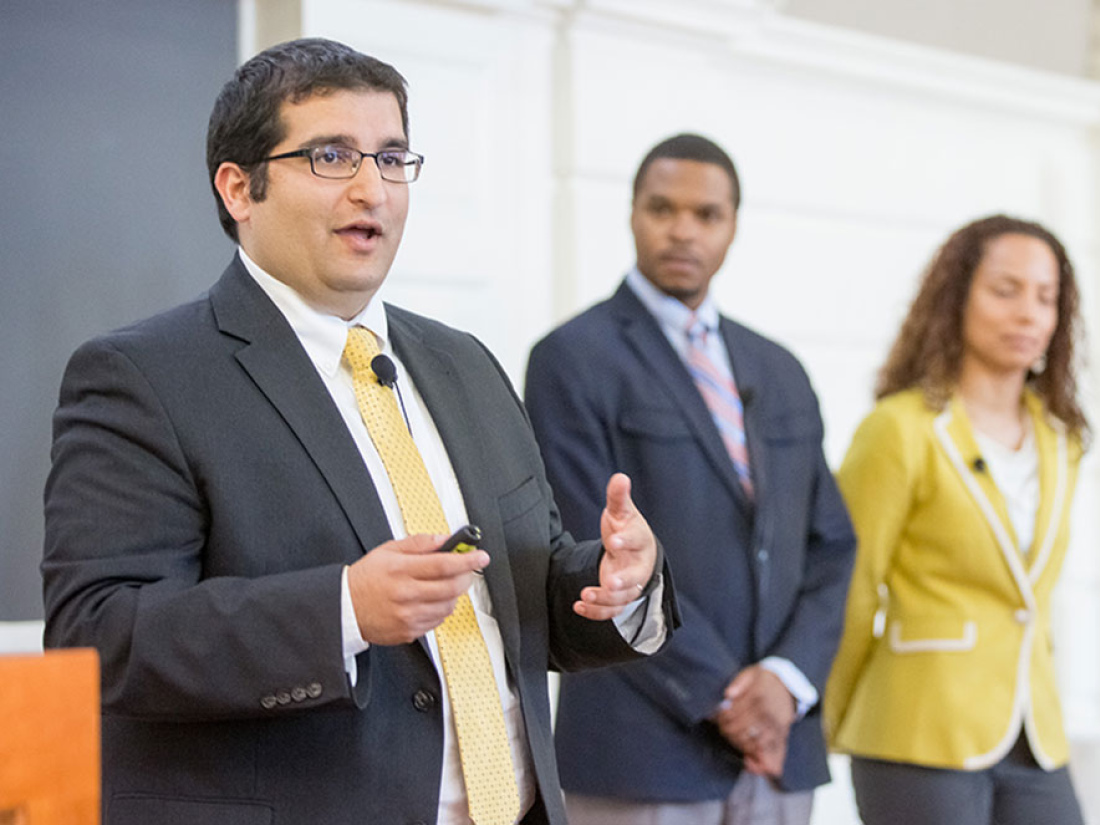
Additional Information
- Download the Doctoral Viewbook
- Admissions & Aid
America needs transformative leaders in preK–12 education whose passion for education quality and equity is matched by a knowledge of learning and development, the organizational management skills to translate visionary ideas into practical success, and a firm grasp of the role of context and politics in shaping leadership. Graduates of the three-year, multidisciplinary Doctor of Education Leadership (Ed.L.D.) Program at the Harvard Graduate School of Education will be prepared to become those leaders.
The Ed.L.D Program — taught by faculty from the Harvard Graduate School of Education, the Harvard Business School, and the Harvard Kennedy School — will train you for system-level leadership positions in school systems, state and federal departments of education, and national nonprofit organizations. Ed.L.D. is a full-time, three-year program built on a cohort learning model. Cohorts consist of up to 25 students from diverse professional backgrounds (including district/charter management leaders, nonprofit directors, principals, teachers, and policy researchers) who progress through the program together.
All Ed.L.D. students receive a full tuition funding package plus stipends, work opportunities, and a paid third-year residency at a partner organization.
The Ed.L.D. Program prepares graduates to do work for the public good in the American public education sector, whether that be at the system or state level. Specifically, the program is designed to accelerate the progress graduates make toward achieving meaningful impact in influential roles and/or crossing boundaries in the following spaces in the public education sector:
- PreK–12 district or CMO leadership roles : superintendent of schools, chief academic officer, and/or deputy superintendent
- Foundation/philanthropy roles: director, president and CEO, senior fellow
- Education nonprofit roles : president or executive director of backbone or collective impact organizations which support preK–12 schools. Ed.L.D. graduates will lead education nonprofits that explicitly focus on improving outcomes and opportunities for children, families, and communities.
- State or federal education leadership roles : commissioner or deputy commissioner roles. Could also include public education advocacy or education policy advisers to senior government officials.
- Social Entrepreneurship and Innovation roles: Founder, CEO, president
Curriculum Information
The Ed.L.D. curriculum is a balance of multidisciplinary coursework and practice-based learning. Core courses and electives are taught by recognized leaders from across Harvard’s graduate programs in fields like data-based education reform, organizational change and innovation, and effective leadership strategies for urban schools. You will develop and test your leadership skills through team projects and an immersive third-year residency.
All students in the cohort take the same classes in four foundational content areas: learning and teaching, leadership and organizational change, politics and policy, adult development, and leadership inside and out (including one-on-one executive coaching). Courses taken during the first-year focus on practice-based learning and serve as the framework of your first-year experience.
Sample HGSE Courses
- Leading Change
- How People Learn
- Ed.L.D. Proseminar
- Leadership, Entrepreneurship, and Learning
- Race, Equity, and Leadership
- Practicing Leadership Inside and Out
- Sector Change
- The Workplace Lab for System-Level Leaders
View all courses in the Academic Catalog.
Each cohort member works with program advisers to choose an individualized sequence of electives from any of the Harvard graduate schools. You will work closely with the program faculty and staff during your second year to determine the best match with a partner organization for your third-year residency. Matches are driven by mutual interest between the resident and the partner organization, and each student's career and learning goals and geographic preferences.
- Second Year Practicing Leadership Inside and Out
- Driving Change
- Education Sector Nonprofits
- Negotiation Workshop
- Coaching with Equity in Mind
- Ethnic Studies and Education
- Deeper Learning for All: Designing a 21st Century School System
- Institutional Change in School Organizations, Systems, and Sectors
You will take part in a 10-month paid residency at one of our partner organizations. There, you will work on a strategic project which synthesizes your experience and learning into a written Capstone project. You will stay connected to your Ed.L.D. cohort and HGSE through technology and by returning to Harvard periodically for intensive workshops.
Paid Residency
Our partner organizations include school systems and departments of education, as well as some of the nation's most influential and dynamic nonprofit, mission-based for-profit, and philanthropic organizations.
You will be intentionally pushed out of your comfort zones and asked to work systemically and make a significant contribution to the partner organization. In addition, the residency will provide you with the professional mentoring, practical experiences, and network of connections they need to position themselves as future leaders in the education sector.
Strategic Project
You will define (with supervisors from your partner organization) a strategic project on which to focus. You will have the opportunity to lead one or two major efforts on behalf of the organization, such as the creation or implementation of current initiatives. The project allows you to practice and improve leadership skills, add important value to the mission and strategy of the partner organization, work systemically, and hold high-level accountability.
During the residency period, you will produce a written Capstone. The Capstone is a descriptive, analytic, and reflective account of your third-year leadership contributions to a strategic project within an Ed.L.D. partner organization. It is a demonstration of your ability to engage others, develop strategy to successfully address and diagnose challenges, work toward a vision and goals, and learn from the results.
Sample Topics
- Accountability, Coherence, and Improvement: Leadership Reflection and Growth in the Los Angeles Unified School District
- Leadership Development for Entrepreneurial Education Leaders Working to Build Public & Private Sector Support
- Disrupting Teacher Preparation: Lessons in Collaboration and Innovation Across the Learning to Teach Community of Practice
- Pursuing Educational Equality for English Language Learners
Sample Summaries
- Breaking Down Silos in a School District: Findings from an Ed.L.D. Project in Montgomery County
- Expanding Students' Access to Meaningful STEM Learning Opportunities Through Strategic Community Partnerships
- Developing a New Teacher Leadership and Compensation System in Iowa: A Consensus-Based Process
- Finding Great Teachers for Blended-Learning Schools
GSE Theses and Dissertations from Digital Access to Scholarship at Harvard (DASH)
Program Faculty
Ed.L.D. students learn with renowned faculty from the Harvard Graduate School of Education, Harvard Business School, and Harvard Kennedy School. Faculty from the three schools share their individual expertise in the Ed.L.D. Program and work collaboratively to provide a challenging and coherent experience for students. Faculty who teach in the Ed.L.D. core curriculum and advise Ed.L.D. students include:
Faculty Director

Frank D. Barnes
Frank Barnes is faculty director of the Doctor of Education Leadership Program. He has over 30 years experience as an educator, researcher, and organizer. As a chief accountability officer, he led turnaround efforts for large public school districts, including Boston Public Schools and Charlotte-Mecklenburg Schools.
Kathryn Parker Boudett

Ebony N. Bridwell-Mitchell

Jennifer Perry Cheatham

Elizabeth City

Candice Crawford-Zakian

Marshall Ganz

Adria D. Goodson
Deborah helsing.

Monica C. Higgins

Deborah Jewell-Sherman

Lisa Laskow Lahey

Mary Grassa O'Neill

Irvin Leon Scott

Catherine Snow

Michael L. Tushman
Martin west.

Introduce Yourself
Tell us about yourself so that we can tailor our communication to best fit your interests and provide you with relevant information about our programs, events, and other opportunities to connect with us.
Program Highlights
Explore examples of the Doctor of Education Leadership experience and the impact its community is making on the field:

Do We Need Happiness Teachers?
After a trip to meet with the Dalai Lama, an Ed.L.D. student says we do

Combatting Chronic Absenteeism with Family Engagement
As post-COVID absenteeism rates continue unabated, a look at how strong family-school engagement can help
- Get 7 Days Free
University of Detroit Mercy graduate programs rank among best according to U.S. News & World Report 'Best Graduate Programs' 2024-25 edition
PR Newswire
DETROIT, June 4, 2024
DETROIT, June 4, 2024 /PRNewswire/ -- University of Detroit Mercy (UDM) graduate programs are once again ranked among the top in the nation in the 2024-25 U.S. News & World Report's Best Colleges edition.
This is the fifth consecutive year Detroit Mercy graduate programs have ranked among the nation's best.
This year, the College of Business Administration's (CBA) MBA in Management was ranked No. 17 in the nation, up from No. 23 in 2023-24. It is the 10th consecutive year in a row this program has ranked among the country's top 25.
In addition, the College of Health Professions' Nurse Anesthesia program also ranked No. 18 this year and remains among the top 20 programs throughout the country.
Other rankings for 2024-25 include the following:
School of Law
- Overall Ranking – No. 136 (up from No. 141 in 2023-24)
- Business-Corporate Law – No. 149 (up from No. 164 in 2023-24)
- Environmental Law – No. 132 (up from No. 145 in 2023-24)
- Health Care Law – No. 132 (up from No. 148 in 2023-24)
- Tax Law – No. 142 (up from No. 164 in 2023-24)
- Constitutional Law – No. 150 (up from No. 158 in 2023-24)
- Legal Writing – No. 66 (up from No. 98 in 2023-24)
College of Business Administration
- Full-time Business – No. 79 (up from No. 86 in 2023-24)
- Part-time MBA – No. 207 (up from No. 246 in 2023-24)
College of Health Professions & McAuley School of Nursing
- Nursing – Master's – No. 91 (up from No. 103 in 2023-24)
Each year, U.S. News & World Report ranks professional school programs in business, education, engineering, law, medicine and nursing, including specialties in each area. The Best Graduate Schools rankings in these areas are based on two types of data — expert opinion about program excellence and statistical indicators that measure the quality of a school's faculty, research and students.
The data for the rankings in all six disciplines came from statistical surveys of 2,214 programs and from reputation surveys sent to approximately 6,300 academics and 12,690 professionals, conducted in fall 2022 and early 2023. To gather the peer assessment data, U.S. News asked deans, program directors and senior faculty to judge the academic quality of programs in their field on a scale of 1 (marginal) to 5 (outstanding).
For more information about U.S. News & World Report's 'Best Graduate' schools, please visit https://www.usnews.com/best-graduate-schools .
SOURCE University of Detroit Mercy
Market Updates
Which ai stocks are turning hype into revenue, best- and worst-performing stocks of may 2024, 3 stocks to buy and 3 stocks to sell in june, markets brief: friday’s job report in focus, these stocks are (still) powering the bull market, 5 undervalued energy stocks to play the ai data center demand boom, after earnings, is lowe’s stock a buy, sell, or fairly valued, 5 stocks with the largest fair value estimate cuts after q1 earnings, stock picks, 10 top-performing dividend stocks of the month, 10 cheap dividend-growth stocks to buy, manager: nvidia will be biggest company in the world, the best utilities stocks to buy, 3 cheap dividend stocks to buy yielding 4% or more, after earnings, is salesforce stock a buy, sell, or fairly valued, broadcom: raising valuation estimate as ai becomes a greater driver of growth, 3 dividend stocks for june 2024, sponsor center.
Naveen Jindal School of Management
Master of science in financial technology and analytics.
36 semester credit hours minimum
FACG> jsom-financial-engineering-and-risk-management-ms
Professors: Alain Bensoussan @axb046100 , Umit G. Gurun @ugg041000 , Vikram Nanda @vkn150030 , Suresh Radhakrishnan @sradhakr , Michael J. Rebello @mjr071000 , Harold Zhang @hxz054000 , Zhiqiang (Eric) Zheng @zxz062000
Associate Professors: Nina Baranchuk @nxb043000 , Zhonglan Dai @zxd051000 , Michael Hasler @mxh190031 , Robert L. Kieschnick Jr. @rkiesch , Harpreet Singh @hxs104000 , Han (Victor) Xia @hxx110930 , Yexiao Xu @yexiaoxu , Feng Zhao @fxz082000
Assistant Professor: Hongchang Wang @hxw140930
Clinical Professor: John Barden @jpb063000
Clinical Associate Professor: Carolyn Reichert @carolyn
Clinical Assistant Professor: Liping Ma @lxm133730
Degree Requirements
The Master of Science in Financial Technology and Analytics (MS FTEC) at the Naveen Jindal School of Management is a STEM (Science, Technology, Engineering and Mathematics) cohort degree program that requires a minimum of 36 semester credit hours. This Fintech program provides students with the practical and theoretical knowledge needed to pursue careers involving digital financial technologies and financial data analytics. The program is designed for students with or without previous educational background in finance, but with a proclivity toward more computer-based approaches to financial issues.
Students completing this program will gain a knowledge of both finance and the key digital and analytical technologies used in finance. For example, students completing the program will know how use robotic process agents, build blockchains with smart contracts, create cryptocurrencies or tokens for payment systems, use statistical methods for analyzing financial data, and apply machine learning to financial issues. While the full-time program is a cohort program, a part-time program for working professionals is also offered. Both programs only begin each fall. Special tuition, fees and admissions requirements apply since the program is supported entirely by participant tuition/fees.
To apply for this degree program, an undergraduate degree is required (all majors are considered). Students must maintain a cumulative 3.0 grade-point average (GPA) in all graduate courses taken in the degree program, excluding program prerequisites, to qualify for the MS degree.
Prerequisites
Students pursuing the Master of Science in Financial Technology and Analytics degree program are required to have completed course work covering calculus, linear algebra, probability/statistics, and programming with a grade of "B" or better. Applicants who have not satisfied these requirements will be considered on a case-by-case basis.
Course Requirements
Core Courses: 36 semester credit hours
Program director develops a program of study for students each term based on courses listed below.
FTEC 6002 Financial Analytics Training and Internship
FTEC 6301 Financial Accounting Information and Analysis
FTEC 6302 Financial Markets and Institutions
FTEC 6303 Asset Pricing and Management
FTEC 6304 Corporate Finance and Risk Management
FTEC 6305 Mathematics in Finance
FTEC 6310 Financial Information and Analytics
FTEC 6311 Robotics and Financial Technology
FTEC 6312 Financial Applications of Blockchain Technology
FTEC 6313 Cloud Computing
FTEC 6314 Financial Applications of Web Technologies
FTEC 6319 Mathematics for Financial Analytics
FTEC 6320 Statistical Methods for Financial Analytics
FTEC 6321 Advanced Statistical Methods for Financial Analytics
FTEC 6324 Financial Applications of Natural Language Processing
FTEC 6325 Algorithmic Trading and Robo-Advising
FTEC 6331 Risk Evaluation and Management
FTEC 6334 Financial Applications of Machine Learning
FTEC 6V98 Financial Technology and Analytics Internship
FTEC 6V99 Special Topics in Financial Technology and Analytics
Graduate Certificates
Graduate certificate in fintech.
12 semester credit hours
FACG> jsom-fintech-cert-g
The Graduate Certificate in Fintech (Financial Technology) focuses on certain key financial technologies: blockchain technologies and various types of robotic technologies. These technologies are becoming ever more important in financial markets. Students learn how to apply these technologies to provide various financial services.
Students interested in just the Graduate Certificate in Fintech can enroll in the Master of Science of Financial Technology and Analytics program as a part-time student. However, they would need to identify this interest in their application. Students earn this certificate by completing the following courses with a "B" or better.
Academic certification programs follow the same application and admission processes as graduate degree programs. All dates and deadlines can be located in the UTD Academic Calendar. Failure to register in advance and on-time results in a late fee. Students may contact the JSOM advising office for details.
Graduate Certificate in Financial Data Science
FACG> jsom-financial-data-science-cert-g
The Graduate Certificate in Financial Data Science focuses on the analytical technologies applied to the analysis of financial data for decision making. These technologies include SQL and NoSQL databases, Natural Language Processing, Econometrics, and Machine Learning. These technologies are becoming ever more important in the provision of financial services. Students learn how to use these technologies to analyze financial data in support of financial decisions.
Students interested in just the Graduate Certificate in Financial Data Science can enroll in the Master of Science of Financial Technology and Analytics program as a part-time student. However, they would need to identify this interest in their application. Students earn this certificate by completing the following courses with a "B" or better.
FTEC 6320 Statistical Analysis for Financial Analysis
FTEC 6321 Advanced Statistical Analysis for Financial Analysis
FTEC 6V99 Special Topics in Financial Technology and Analytics (taken 2 times)
Statistics and Actuarial Science
Information for new graduate students in actuarial science, data science and statistics at the university of iowa..
Welcome New Graduate Students!
Information for NEW graduate students in Actuarial Science, Data Science and Statistics at the University of Iowa.
Last Updated, May 31, 2024. Additional updates will be sent this summer!
Important Information for International Students
The Office of International Students and Scholars does an incredible job helping you settle into Iowa City and the University of Iowa. They have webinars to help with:
1. Getting Started and Making Travel Arrangements
2. Achieving Success: On-campus Involvement and Cultural Adjustment (undergraduate students)
3. Graduate Student Professionalization and Support
4. Understanding Orientation Expectations, Responsibilities, and Placement Tests (graduate students)
5. On-campus Housing Assignments and Move-in Tips (undergraduate students)
6. Student Employment
7. Money Matters - University Billing
Do you need to take the SPEC (Spoken Proficiency of English for the Classroom)?
All students for whom English is not a first language (as self-reported on their admissions application) and who have first-time appointments as graduate teaching assistants (TAs) are required to go through a testing process to assess their effectiveness in speaking English before they are assigned assistantship responsibilities. Beginning in Fall 2024, there will be a new test to assess communication in English in a classroom context called SPEC (Spoken Proficiency of English in the Classroom). This is replacing ESPA and ELPT. Details will be coming soon.
Any graduate student who is included in the following categories needs to have their oral English proficiency tested by the TAPE Program:
- Students whose first language is not English (i.e., learned another language first) as self-reported on their admissions application, and
- Have been appointed as a Teaching Assistant
Exemptions (may change):
- Students with an official valid (within the last two years) iBT Listening score of 25 and an iBT Speaking score of 26.
- Undergraduate degrees and/or
- Continuous attendance of English-language schools since the age of 12 (or younger)
- Students who served as teaching assistants at other institutions of higher learning in which the language of instruction is English, if they were listed as the instructor of record for a course or led a discussion section in English for at least one year, with a year defined as either two academic semesters or three academic quarters.
- Requests for exceptions regarding the SPEC can be submitted for evaluation to a committee consisting of the Director of ESL Programs, the Associate Dean for Administrative Affairs in the Graduate College, and a representative from University Human Resources.
Requests for exemption and exceptions must come from the department by the deadline, not the student. Deadlines to register students for the SPEC are:
- March 1
NOT Exemptions:
- Students who come from a country where English is one of the official languages.
- Students who are U.S. permanent residents or U.S. citizens whose first language is not English.
Testing Procedures & Results
To be announced soon!
Graduate/Professional International Students Important Dates
July 12, 2024: Earliest date you may enter the U.S. in F-1 or J-1 status. August 11, 2024: Latest date by which you should arrive in Iowa City August 12 - 16, 2024: International Student Orientation August 26, 2024: Classes begin.
Housing Information for All Students
The department has a housing webpage, please let us know if you have any questions or concerns. If you are looking for a roommate, please let us know and we can update this web page!
Looking for housing options ?
All US citizens that are financially supported (TA, RA) need to be here on August 21.
All students will register for classes the week before classes start. International students must complete the required Orientation Program before they can register for classes.
____________________
Fall Classes Advising will be August 19-23
All NEW UI students must meet with their advisor prior to registration. There is no worry about getting into any of the classes we teach.
- IF you are an Actuarial Science MS or PhD student you will need to meet with Professor Shyamalkumar. Email him after August 12 at [email protected] to set a time to meet to discuss what classes to take, it may be on Zoom or in his office (233 Schaeffer Hall).
- IF you are a Data Science MS, Statistics MS, or PhD student you will need to meet with Professor Boxiang Wang. Email him after August 12 at [email protected] to set a time to meet to discuss what classes to take, it may be on Zoom or in his office (261 Schaeffer Hall).
New Graduate College Welcome and Orientation, August 21
The Graduate College Fall 2024 Graduate Student Orientation event will take place on Wednesday, August 21, 2024. A registration form will be sent to your UI email sometime this early summer from the Graduate College. All new doctoral and master’s students are invited to attend.
New Teaching Assistant Orientation, August 22- required for all new supported students
Sponsored by the Center for Teaching
This event will introduce participants to the role of teaching assistant at the University of Iowa and prepare them for the first week of classes and beyond.
Participants will discuss evidence-based teaching strategies for lesson planning, inclusive teaching, and more with Center for Teaching staff. Participants will also choose two workshops of interest to them out of several options; these will be facilitated synchronously by experienced TAs. This is a virtual event for 9-noon.
- Sign up before August 21!
New Student Department Orientation, August 23 at 9 a.m., Room to be determined.
- All New Student Orientation —Group Introductions and General Policy Procedures.
New Supported Graduate Assistants Orientation, August 23 at 1 p.m., Room to be determined.
- Our Director of Graduate Studies will have a department review of expectations and your specific roles in our department. Teaching and grading assignments will be explained, as well as preparation, teaching tips, problems and questions, quizzes and exams, weekly meetings, grading, appropriate office use and the Sexual Harassment Prevention Education
Mailbox in 241 Schaeffer Hall
All graduate students will have a mailbox in our main office. The faculty do as well. Please check your mailbox at least once a week!
Office Desk Assignment
Nearly all supported students will have a desk in one of our offices. The assignment priority (in this order) includes Ph.D. and Fellowship candidates, research assistants, half-time teaching assistants, quarter-time teaching assistants and lastly graders. Having a desk is a privilege and should be used only for university business. Office assignments will be given to students on, August 23. Keys are checked out ONLY after that time. Please remember to keep the rooms clean and take out all trash to the large bins in the main hallways.
Set-up your University of Iowa Email
All University of Iowa students are required to activate their assigned uiowa.edu email address, as all official communication from university offices are now sent via email, rather than hard copy. This address usually follows the pattern [email protected] (However, often a number is also attached.)
To activate the account:
- Log on to MyUI
- Click on My UIowa / My Email / Request Email Account
- Complete the specified steps.
Students who prefer to maintain only their work or home email addresses can do so by routing the uiowa.edu email to a work or home account. To do so, follow these steps:
- Click on My UIowa / My Email / Update Email Routing Address
Important Notes:
- If your uiowa.edu email address is routed to a different account, you will not need to change your address in ICON, as your messages will already forward to your routed address.
- Log on to MYUI.
- Click on My UIowa / My Email / Email Account Filter bulk mail.
- Make sure that none of the categories are checked.
Required Graduate Assistants Teaching Courses:
- ONLINE CLASS Requirement: Sexual Harassment Prevention Edu. Use your HawkID and password to log into Employee Self Service. Click the Personal tab, next (under Learning and Development) click on Sexual Harassment Prevention Edu., follow instructions.
- ONLINE CLASS Requirement: Federal Educational Rights and Privacy Act (FERPA), Use your HawkID and password to log into Employee Self Service. Click the Personal tab, next (under Learning and Development) next click on Available Online Icon Courses, next FERPA Training, then click on View Details twice and the last click will be to Enroll in this ICON Course Session.
- A six-hour orientation program will be required of all students who are certified at level A or B and are teaching for the first time. This orientation helps new teaching assistants understand the culture of the U.S. classroom and treats topics such as student expectations, teacher-student relationships, and understanding and answering student questions. Discussion focuses on suggestions for maximizing comprehensibility in spoken English. This course meets twice for 3 hours early in the semester. Both meetings are held in the evening.
Administrative Department Staff:
Professor aixin tan (until july 1, 2024).
Director of Graduate Studies, Statistics and Data Science Graduate Advisor: [email protected] (319) 335-0821.
Professor Boxiang Wang (beginning July 1, 2024)
Director of Graduate Studies, Statistics and Data Science Graduate Advisor: [email protected] (319) 335-2294.
Professor N.D. Shyamalkumar
Actuarial Science Graduate Advisor: [email protected] (319) 335-1980
Margie Ebert
Academic Services Coordinator , [email protected] (319) 335-2082
Heather Roth
Administrative Services Coordinator [email protected] (319) 335-0712
Tammy Siegel
Department Administrator , [email protected] , (319) 335-0706
Skip to Content
Other ways to search:
- Events Calendar
Siddhant Sharma

I am a graduate student pursuing a Masters in Data Science from the University of Colorado Boulder. I have an insatiable passion for mathematics, code, and playing with data. A sprinter on the track, my feet fly in the wind, with a 100-meter record in 11 seconds. Inspired by my parents, who stand tall as my role models.
Skip to Content

Current Students

Interested in more? Search Courses
- Search Input Submit Search
Why Taking a Timeout in the NBA Might Not Be the Best Idea
Radioed chats with daniels college of business professor ryan elmore about his work in sports analytics—and why taking a timeout in the midst of an nba game might not be the solution to slowing an opposing team’s momentum..

RadioEd is a biweekly podcast created by the DU Newsroom that taps into the University of Denver’s deep pool of bright brains to explore new takes on today’s top stories. See below for a transcript of this episode.
Much of sports is a gamble. There’s a saying: “Any team can win any game on any given day.” Almost nothing, no outcome, is guaranteed in sports—and that’s part of the fun of watching and playing.
But players and coaches want to eliminate as many variables as possible, trying to leave less up to chance. And that is where statistics come in.
It might seem like a good idea to call a timeout in the NBA when the opposing team is on a scoring run—it could slow their momentum, change the energy of the game, right?
Research from a University of Denver data analytics professor indicates otherwise.

In this episode, Emma chats with Daniels College of Business professor Ryan Elmore about his work in sports analytics—and why taking a timeout in the midst of an NBA game might not be the solution to slowing an opposing team’s momentum.
Ryan Elmore is an associate professor in the Department of Business Information and Analytics at the Daniels College of Business. Prior to Daniels, he worked as a senior scientist in the Computational Sciences Center at the National Renewable Energy Lab in Golden, Colorado. He has also held positions at the Australian National University, Colorado State University and Slide, Inc.
Elmore’s research interests include statistics in sports, nonparametric statistical methods, and energy efficient high-performance computing. His work in sports statistics has led to the position of Associate Editor for the Journal of Quantitative Analysis of Sports (2015–present) and consultant to the Denver Nuggets professional basketball team.
More Information:
“ The causal effect of a timeout at stopping an opposing run in the NBA ”
“ Bang the Can Slowly: An Investigation into the 2017 Houston Astros ”
Listen and Subscribe
Related Articles

Talking to a Loved One With Suicidal Thoughts

The Women Left Behind By War

What Colorado's Tiniest Creatures Tell Us About Life at the Highest Elevations

40 Facts About Elektrostal
Written by Lanette Mayes
Modified & Updated: 01 Jun 2024
Reviewed by Jessica Corbett

Elektrostal is a vibrant city located in the Moscow Oblast region of Russia. With a rich history, stunning architecture, and a thriving community, Elektrostal is a city that has much to offer. Whether you are a history buff, nature enthusiast, or simply curious about different cultures, Elektrostal is sure to captivate you.
This article will provide you with 40 fascinating facts about Elektrostal, giving you a better understanding of why this city is worth exploring. From its origins as an industrial hub to its modern-day charm, we will delve into the various aspects that make Elektrostal a unique and must-visit destination.
So, join us as we uncover the hidden treasures of Elektrostal and discover what makes this city a true gem in the heart of Russia.
Key Takeaways:
- Elektrostal, known as the “Motor City of Russia,” is a vibrant and growing city with a rich industrial history, offering diverse cultural experiences and a strong commitment to environmental sustainability.
- With its convenient location near Moscow, Elektrostal provides a picturesque landscape, vibrant nightlife, and a range of recreational activities, making it an ideal destination for residents and visitors alike.
Known as the “Motor City of Russia.”
Elektrostal, a city located in the Moscow Oblast region of Russia, earned the nickname “Motor City” due to its significant involvement in the automotive industry.
Home to the Elektrostal Metallurgical Plant.
Elektrostal is renowned for its metallurgical plant, which has been producing high-quality steel and alloys since its establishment in 1916.
Boasts a rich industrial heritage.
Elektrostal has a long history of industrial development, contributing to the growth and progress of the region.
Founded in 1916.
The city of Elektrostal was founded in 1916 as a result of the construction of the Elektrostal Metallurgical Plant.
Located approximately 50 kilometers east of Moscow.
Elektrostal is situated in close proximity to the Russian capital, making it easily accessible for both residents and visitors.
Known for its vibrant cultural scene.
Elektrostal is home to several cultural institutions, including museums, theaters, and art galleries that showcase the city’s rich artistic heritage.
A popular destination for nature lovers.
Surrounded by picturesque landscapes and forests, Elektrostal offers ample opportunities for outdoor activities such as hiking, camping, and birdwatching.
Hosts the annual Elektrostal City Day celebrations.
Every year, Elektrostal organizes festive events and activities to celebrate its founding, bringing together residents and visitors in a spirit of unity and joy.
Has a population of approximately 160,000 people.
Elektrostal is home to a diverse and vibrant community of around 160,000 residents, contributing to its dynamic atmosphere.
Boasts excellent education facilities.
The city is known for its well-established educational institutions, providing quality education to students of all ages.
A center for scientific research and innovation.
Elektrostal serves as an important hub for scientific research, particularly in the fields of metallurgy , materials science, and engineering.
Surrounded by picturesque lakes.
The city is blessed with numerous beautiful lakes , offering scenic views and recreational opportunities for locals and visitors alike.
Well-connected transportation system.
Elektrostal benefits from an efficient transportation network, including highways, railways, and public transportation options, ensuring convenient travel within and beyond the city.
Famous for its traditional Russian cuisine.
Food enthusiasts can indulge in authentic Russian dishes at numerous restaurants and cafes scattered throughout Elektrostal.
Home to notable architectural landmarks.
Elektrostal boasts impressive architecture, including the Church of the Transfiguration of the Lord and the Elektrostal Palace of Culture.
Offers a wide range of recreational facilities.
Residents and visitors can enjoy various recreational activities, such as sports complexes, swimming pools, and fitness centers, enhancing the overall quality of life.
Provides a high standard of healthcare.
Elektrostal is equipped with modern medical facilities, ensuring residents have access to quality healthcare services.
Home to the Elektrostal History Museum.
The Elektrostal History Museum showcases the city’s fascinating past through exhibitions and displays.
A hub for sports enthusiasts.
Elektrostal is passionate about sports, with numerous stadiums, arenas, and sports clubs offering opportunities for athletes and spectators.
Celebrates diverse cultural festivals.
Throughout the year, Elektrostal hosts a variety of cultural festivals, celebrating different ethnicities, traditions, and art forms.
Electric power played a significant role in its early development.
Elektrostal owes its name and initial growth to the establishment of electric power stations and the utilization of electricity in the industrial sector.
Boasts a thriving economy.
The city’s strong industrial base, coupled with its strategic location near Moscow, has contributed to Elektrostal’s prosperous economic status.
Houses the Elektrostal Drama Theater.
The Elektrostal Drama Theater is a cultural centerpiece, attracting theater enthusiasts from far and wide.
Popular destination for winter sports.
Elektrostal’s proximity to ski resorts and winter sport facilities makes it a favorite destination for skiing, snowboarding, and other winter activities.
Promotes environmental sustainability.
Elektrostal prioritizes environmental protection and sustainability, implementing initiatives to reduce pollution and preserve natural resources.
Home to renowned educational institutions.
Elektrostal is known for its prestigious schools and universities, offering a wide range of academic programs to students.
Committed to cultural preservation.
The city values its cultural heritage and takes active steps to preserve and promote traditional customs, crafts, and arts.
Hosts an annual International Film Festival.
The Elektrostal International Film Festival attracts filmmakers and cinema enthusiasts from around the world, showcasing a diverse range of films.
Encourages entrepreneurship and innovation.
Elektrostal supports aspiring entrepreneurs and fosters a culture of innovation, providing opportunities for startups and business development .
Offers a range of housing options.
Elektrostal provides diverse housing options, including apartments, houses, and residential complexes, catering to different lifestyles and budgets.
Home to notable sports teams.
Elektrostal is proud of its sports legacy , with several successful sports teams competing at regional and national levels.
Boasts a vibrant nightlife scene.
Residents and visitors can enjoy a lively nightlife in Elektrostal, with numerous bars, clubs, and entertainment venues.
Promotes cultural exchange and international relations.
Elektrostal actively engages in international partnerships, cultural exchanges, and diplomatic collaborations to foster global connections.
Surrounded by beautiful nature reserves.
Nearby nature reserves, such as the Barybino Forest and Luchinskoye Lake, offer opportunities for nature enthusiasts to explore and appreciate the region’s biodiversity.
Commemorates historical events.
The city pays tribute to significant historical events through memorials, monuments, and exhibitions, ensuring the preservation of collective memory.
Promotes sports and youth development.
Elektrostal invests in sports infrastructure and programs to encourage youth participation, health, and physical fitness.
Hosts annual cultural and artistic festivals.
Throughout the year, Elektrostal celebrates its cultural diversity through festivals dedicated to music, dance, art, and theater.
Provides a picturesque landscape for photography enthusiasts.
The city’s scenic beauty, architectural landmarks, and natural surroundings make it a paradise for photographers.
Connects to Moscow via a direct train line.
The convenient train connection between Elektrostal and Moscow makes commuting between the two cities effortless.
A city with a bright future.
Elektrostal continues to grow and develop, aiming to become a model city in terms of infrastructure, sustainability, and quality of life for its residents.
In conclusion, Elektrostal is a fascinating city with a rich history and a vibrant present. From its origins as a center of steel production to its modern-day status as a hub for education and industry, Elektrostal has plenty to offer both residents and visitors. With its beautiful parks, cultural attractions, and proximity to Moscow, there is no shortage of things to see and do in this dynamic city. Whether you’re interested in exploring its historical landmarks, enjoying outdoor activities, or immersing yourself in the local culture, Elektrostal has something for everyone. So, next time you find yourself in the Moscow region, don’t miss the opportunity to discover the hidden gems of Elektrostal.
Q: What is the population of Elektrostal?
A: As of the latest data, the population of Elektrostal is approximately XXXX.
Q: How far is Elektrostal from Moscow?
A: Elektrostal is located approximately XX kilometers away from Moscow.
Q: Are there any famous landmarks in Elektrostal?
A: Yes, Elektrostal is home to several notable landmarks, including XXXX and XXXX.
Q: What industries are prominent in Elektrostal?
A: Elektrostal is known for its steel production industry and is also a center for engineering and manufacturing.
Q: Are there any universities or educational institutions in Elektrostal?
A: Yes, Elektrostal is home to XXXX University and several other educational institutions.
Q: What are some popular outdoor activities in Elektrostal?
A: Elektrostal offers several outdoor activities, such as hiking, cycling, and picnicking in its beautiful parks.
Q: Is Elektrostal well-connected in terms of transportation?
A: Yes, Elektrostal has good transportation links, including trains and buses, making it easily accessible from nearby cities.
Q: Are there any annual events or festivals in Elektrostal?
A: Yes, Elektrostal hosts various events and festivals throughout the year, including XXXX and XXXX.
Elektrostal's fascinating history, vibrant culture, and promising future make it a city worth exploring. For more captivating facts about cities around the world, discover the unique characteristics that define each city . Uncover the hidden gems of Moscow Oblast through our in-depth look at Kolomna. Lastly, dive into the rich industrial heritage of Teesside, a thriving industrial center with its own story to tell.
Was this page helpful?
Our commitment to delivering trustworthy and engaging content is at the heart of what we do. Each fact on our site is contributed by real users like you, bringing a wealth of diverse insights and information. To ensure the highest standards of accuracy and reliability, our dedicated editors meticulously review each submission. This process guarantees that the facts we share are not only fascinating but also credible. Trust in our commitment to quality and authenticity as you explore and learn with us.
Share this Fact:

IMAGES
VIDEO
COMMENTS
The Big Data Science and Engineering (BDSE) program is a PhD fellowship program that allows selected students to pursue research in the area of big data science and engineering. This new fellowship program was created to train more computer scientists in data science application fields such as health informatics, geosciences, precision and ...
A PhD in Data Science is a research degree that typically takes four to five years to complete but can take longer depending on a range of personal factors. In addition to taking more advanced courses, PhD candidates devote a significant amount of time to teaching and conducting dissertation research with the intent of advancing the field.
An NRT-sponsored program in Data Science Overview Overview Advances in computational speed and data availability, and the development of novel data analysis methods, have birthed a new field: data science. This new field requires a new type of researcher and actor: the rigorously trained, cross-disciplinary, and ethically responsible data scientist. Launched in Fall 2017, the …
Doctoral candidates will master the computational and mathematical foundations of data science, and develop competencies in data engineering, software development, data policy and ethics. Doctoral students in our program apprentice with faculty and pursue advanced research in an interdisciplinary, collaborative environment that is often focused ...
The degree combines data science course requirements with practical experience and a dissertation. This degree emphasizes original research, theory, application, and industry tools like other doctoral programs. Graduates of doctoral programs in data science can work as researchers, college professors, and senior data scientists.
Run by the Committee on Data Science, the PhD curriculum combines training in mathematical foundations of data science, responsible data use and communication, and advanced computational methods. Students conduct research on cutting edge problems alongside preeminent faculty at UChicago and explore the emerging field of Data Science. As an ...
Data Science Doctoral Program. Graduate Admissions 1.888.511.1306 [email protected]. Request Information. Apply Now. Gain in-demand skills in emerging areas like artificial intelligence, machine learning and language processing in a Ph.D. program designed with input from industry leaders. An interdisciplinary degree program of the Schaefer ...
Check Circle. Expertise and Specialization: A Ph.D. allows you to become an expert in a specific area of data science, giving you a deep understanding of the subject matter and its applications. Check Circle. Research Opportunities: Pursuing a Ph.D. opens doors for you to conduct cutting-edge research, contribute to the field's advancement, and ...
PhD in Data Science and Analytics. We launched the first formal PhD program in Data Science in 2015. Our program sits at the intersection ofcomputer science, statistics, mathematics, and business. Our students engage in relevant research with faculty from across our eleven colleges.
Doctoral programs in data analytics are available, but they are rare. The most popular title for a degree in the realm of data is the PhD in Data Science. Data science is a highly inventive field that builds on analytical foundations, so it makes sense to consider a doctoral program that focuses on innovation & self-guided discoveries. ...
The Doctor of Philosophy in Data Science (PhD-DS) program can be completed in 60 credits. Each course runs 8 weeks, and dissertation courses run 12 weeks. Course Sequence. The PhD program may be completed in a minimum of 60 credits. Additional credit hours may be allowed as needed to complete the dissertation research.
The PhD program in data science, analytics and engineering engages students in fundamental and applied research. The program's educational objective is to develop each student's ability to perform original research in the development and execution of data-driven methods for solving major societal problems. This includes the ability to identify ...
Statistics and Data Science. Wharton's PhD program in Statistics and Data Science provides the foundational education that allows students to engage both cutting-edge theory and applied problems. These include theoretical research in mathematical statistics as well as interdisciplinary research in the social sciences, biology and computer ...
The program is in the midst of a major expansion, with over 50 graduate students joining the program in the past year alone. Multiple faculty in our department have secured high-profile research grants, including three active CAREER awards, the National Science Foundation's most prestigious award for early-career faculty. The IU Indianapolis campus hosts the newly created Institute of ...
PhD Program. Wharton's PhD program in Statistics provides the foundational education that allows students to engage both cutting-edge theory and applied problems. These include problems from a wide variety of fields within Wharton, such as finance, marketing, and public policy, as well as fields across the rest of the University such as ...
The Ph.D. specialization in data science is an option within the Applied Mathematics, Computer Science, Electrical Engineering, Industrial Engineering and Operations Research, and Statistics departments. Only students already enrolled in one of these doctoral programs at Columbia are eligible to participate in this specialization.
PhD in Data Analytics Programs. A PhD in data analytics prepares professionals to work in data-driven fields, including research, business, healthcare, and government. The most common reason people pursue a PhD in a data-related field is that they are passionate about data and would like to have a career that involves research and making ...
The PhD program in Health Policy (Management) prepares students to effect powerful change rooted in data-driven research on the managerial, operational, and strategic issues facing a wide range of organizations. Coursework includes the study of microeconomics theory, management, research methods, and statistics.
A PhD in industry it's necessary only if you are looking for a very research-y role in a big company. UMSI - University Michigan School of Information. Also look into their MADS program, Michigan Applied Data Science program. Probably depends on your area of research. But I'd imagine cal, UCB, Carnegie, MIT, Umich, Georgia tech, .etc.
In graduate school, 9 credits and up is full-time. Full-time students can complete the program in 2 years. Part-time students take 2.5 to 4 years to complete the program. Example Class Schedules. Transferrable Skills Courses; Data Science ... Data Mining is about discovering patterns and structures in large data sets. This course will guide you ...
The Ed.L.D. curriculum is a balance of multidisciplinary coursework and practice-based learning. Core courses and electives are taught by recognized leaders from across Harvard's graduate programs in fields like data-based education reform, organizational change and innovation, and effective leadership strategies for urban schools.
To gather the peer assessment data, U.S. News asked deans, program directors and senior faculty to judge the academic quality of programs in their field on a scale of 1 (marginal) to 5 (outstanding).
The program is designed to ensure that all students can communicate across the divide of natural, technological and social systems to address urgent sustainability challenges with a focus on environmental justice. ... Professional Science Master's in Geospatial Data Science ... We offer two graduate certificates that pair well with other ...
Academic certification programs follow the same application and admission processes as graduate degree programs. All dates and deadlines can be located in the UTD Academic Calendar. Failure to register in advance and on-time results in a late fee. Students may contact the JSOM advising office for details. Graduate Certificate in Financial Data ...
International students must complete the required Orientation Program before they can register for classes. ... 335-0821.Professor Boxiang Wang (beginning July 1, 2024)Director of Graduate Studies, Statistics and Data Science Graduate Advisor: [email protected] (319) 335-2294.Professor N.D. ShyamalkumarActuarial Science Graduate Advisor ...
The system of education in SU-HSE ensures competitiveness of Russian education in its most required and, at the same time, its weakest sphere - economic and social sciences. The School was the first in Russia to adopt the commonly accepted world-wide "4+2" practice: four years of studies - bachelor course; and two years - master course.
Offered through an interdisciplinary partnership, data science at CU Boulder is delivered by the Departments of Applied Mathematics, Computer Science, and Information Science and awarded by the Graduate School. [email protected] (monitored Monday - Friday 9:00 AM - 5:00 PM MST) 303-735-4114 (monitored Monday - Friday 9:00 AM - 5:00 PM MST)
Research from a University of Denver data analytics professor indicates otherwise. In this episode, Emma chats with Daniels College of Business professor Ryan Elmore about his work in sports analytics—and why taking a timeout in the midst of an NBA game might not be the solution to slowing an opposing team's momentum.
40 Facts About Elektrostal. Elektrostal is a vibrant city located in the Moscow Oblast region of Russia. With a rich history, stunning architecture, and a thriving community, Elektrostal is a city that has much to offer. Whether you are a history buff, nature enthusiast, or simply curious about different cultures, Elektrostal is sure to ...
Medvedkovo Medvedkovo is a Moscow Metro station in Severnoye Medvedkovo District, North-Eastern Administrative Okrug, Moscow.It is on the Kaluzhsko-Rizhskaya Line serving as its northeastern terminus. The station opened on 29 September 1978.